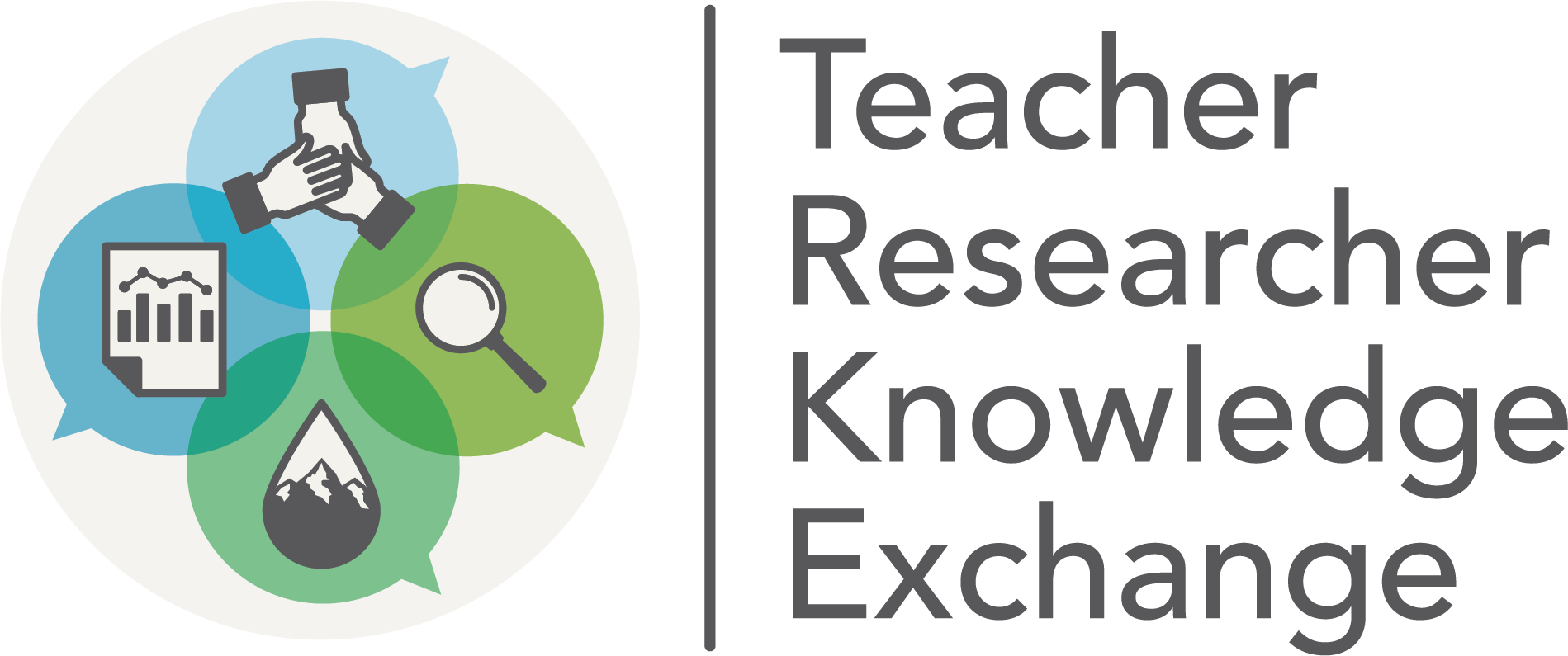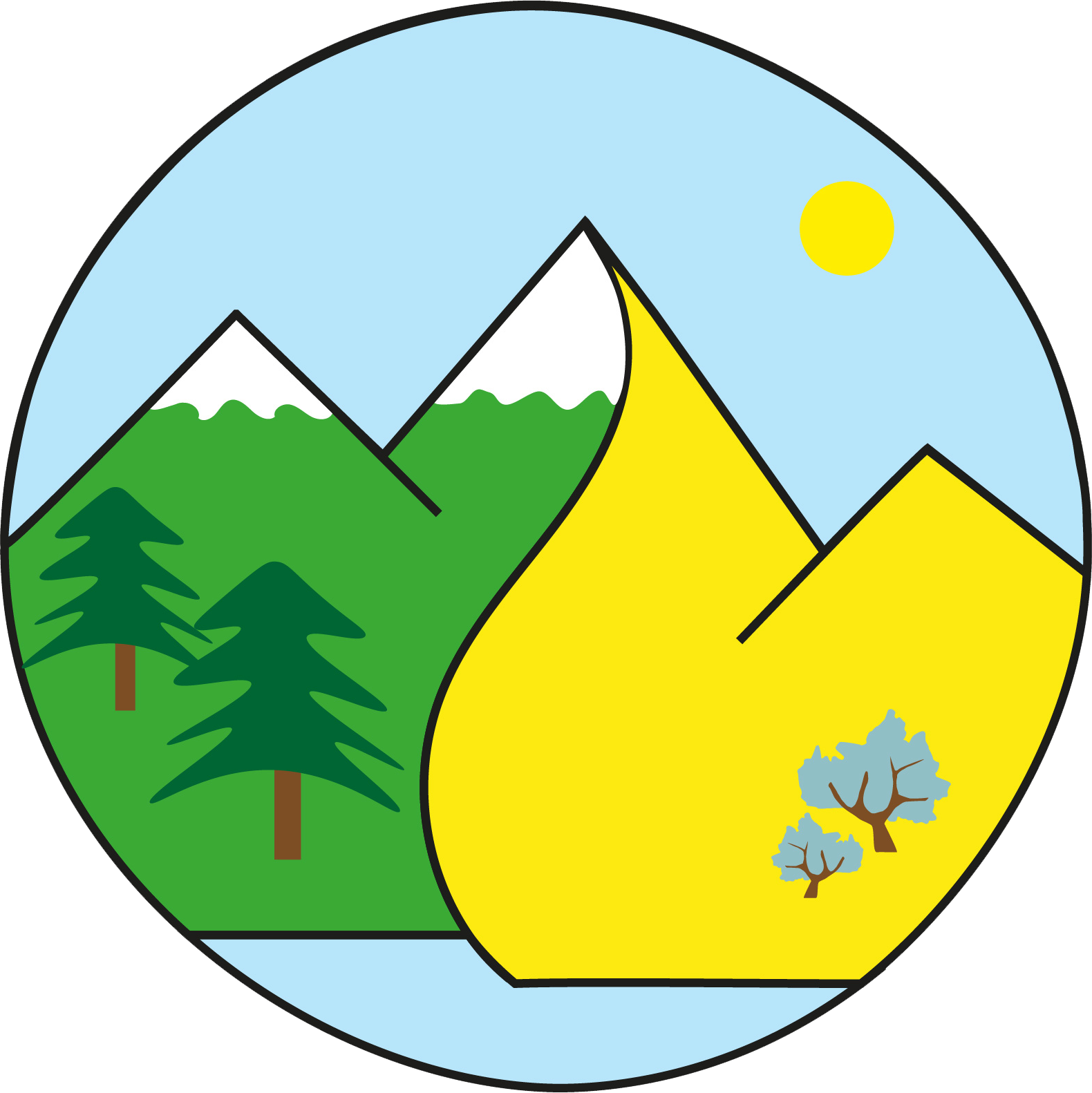Teacher Researcher Knowledge Exchange Educational Resources
The "Teacher Researcher Knowledge Exchange" (TRKE) is designed to foster collaborative educational initiatives and research between teachers and researchers. It aims to improve educational outcomes and increase scientific literacy through direct involvement in ongoing research activities. This project facilitates meaningful exchanges of knowledge, ensuring that both educators and researchers benefit from shared insights and experiences.
Welcome to the Teacher Researcher Knowledge Exchange (TRKE)
An innovative professional learning program where educators, researchers, and community members collaborate to enhance educational outcomes and scientific literacy through direct engagement and knowledge exchange.
Our Vision
To establish a lasting framework where Wyoming's educators, researchers, and community members collaboratively develop educational resources that integrate real-world scientific research into classrooms, fostering a deeper understanding and appreciation of science among students.
Our Mission
TRKE is committed to:
- Building strong partnerships between K-12 educators, university scientists, and Wyoming community partners.
- Co-designing educational resources that bring real-world, relevant science and dialogue into communities and classrooms.
- Preparing educators, researchers, and community members to effectively teach and inspire the next generation of scientists.
About TRKE
Initiated under the Wyoming Anticipating Climate Transitions (WY-ACT) project, TRKE offers a cross-disciplinary professional learning program that bridges the gap between pedagogical approaches and scientific research. By participating in TRKE, educators gain hands-on experience with current scientific methods and insights, which they can translate into compelling educational experiences for their students. Likewise, participating researchers gain insight into the current educational landscape, which they can use to inform their research, science communication, and community engagement efforts.
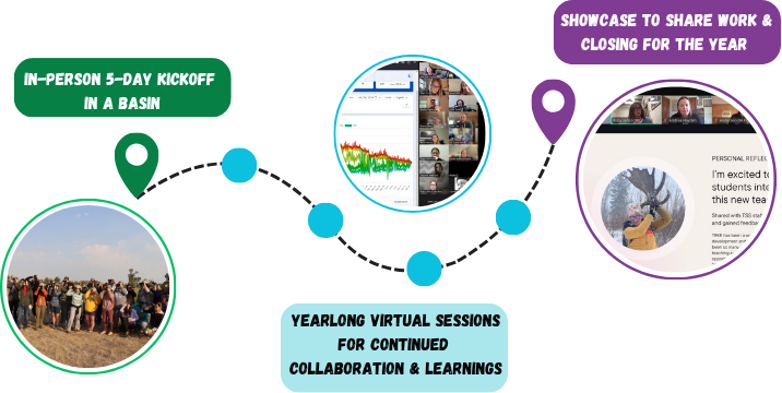
What's New
TRKE participants Chelsea Lund (high school science teacher) and Stefan Rahimi (UW climate modeler) have written an article that's been accepted by NSTA's The Science Teacher! In collaboration with TRKE facilitators, they told the story of integrating big, messy, relevant data into the high school classroom. Stay tuned - we will share the article here when it's published!
The TRKE team is planning for Cohort 4, which will kick off in the Wind-Bighorn Basin in summer 2026 and run through ~May2027. Email smtcpd@uwyo.edu to join our mailing list and be among the first to know when we open applications to the program.
Get Involved
Are you an educator interested in science? A researcher looking to make an impact in education? Join us at TRKE to make a difference. Contact us at smtcpd@uwyo.edu for more information.
Testimonials
"Participating in TRKE has transformed the way I teach science. It's not just about textbooks anymore; it's about bringing real science problems to the classroom." - Wyoming K-12 Educator
"TRKE has provided a unique opportunity to share my research with educators and directly see its impact in their teaching methods and student engagement." - University Researcher
Contact Us
If you have questions about the TRKE program or wish to get involved, please don't hesitate to reach out. Our team is ready to assist you and provide any information you need.
Project Director
Martha Inouye
Science and Mathematics Teaching Center
University of Wyoming
Email: smtcpd@uwyo.edu
Mailing Address
Teacher-Researcher Knowledge Exchange Program
Science and Mathematics Teaching Center
University of Wyoming
1000 E. University Ave,
Laramie, WY 82071
Phone
For immediate assistance, please call the Science and Mathematics Teaching Center:
+1 (307) 766-6381
Social Media
Follow us on social media to stay updated with the latest news and events:
Recent Educational Resources:
All Educational Resources
| Image | Title | Tags | Overview | Grade Level | Resource Type |
|---|---|---|---|---|---|
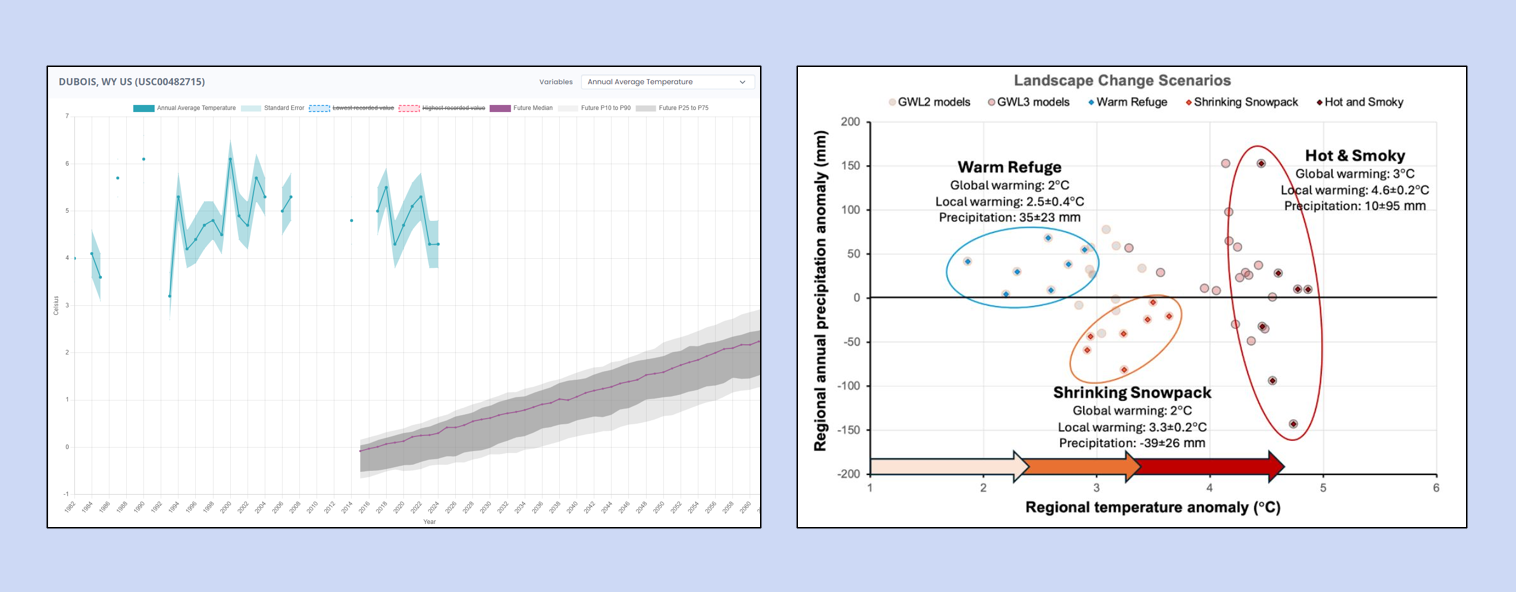
|
Exploring Uncertainty Through Models & Narratives | InTheClassroom AnalyzingAndInterpretingData DataVisualization ScenarioThinkingAndNarratives UncertaintyInScience | Two University of Wyoming researchers, atmospheric scientist Dr. Stefan Rahimi and social scientist Dr. Anderson de Figueiredo, collaborated to show how biophysical and social scientists explore and c... | Grades 9-12 | Program-Created Resources |

|
Seasons, Systems, & Spreadsheets | InTheClassroom AnalyzingAndInterpretingData DataVisualization Videos ClimateData | Johnson Whippie, a high school science teacher, developed a series of spreadsheet-based classroom tools to help students engage with big, messy data. These spreadsheet activities are designed to conne... | Grades 9-12 | Educator-Created Resources |
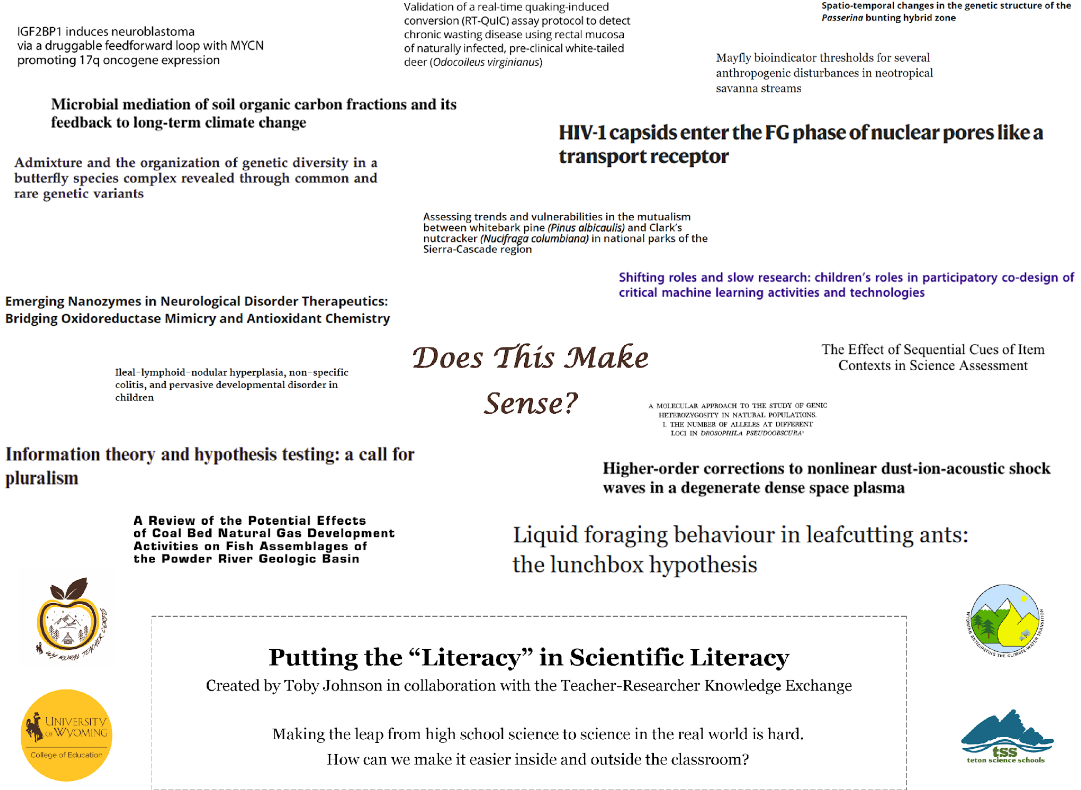
|
How to Read a Scientific Paper | InTheClassroom AnalyzingAndInterpretingData StudentResearch | Toby Johnson, a pre-service teacher, developed this step-by-step guide to help students approach and read daunting scientific papers with confidence. This guide breaks down the reading process into ei... | Grades 9-12 | Educator-Created Resources |

|
Meet the Research Videos | Videos CareerConnections InTheClassroom DataVisualization AnalyzingAndInterpretingData | Juana Hicks Rodriguez created short "Get to Know the Research" videos to introduce K-12 students to real-world scientific research and data interpretation. Each video features a Wyoming scientist expl... | Grades 9-12 | Program-Created Resources |
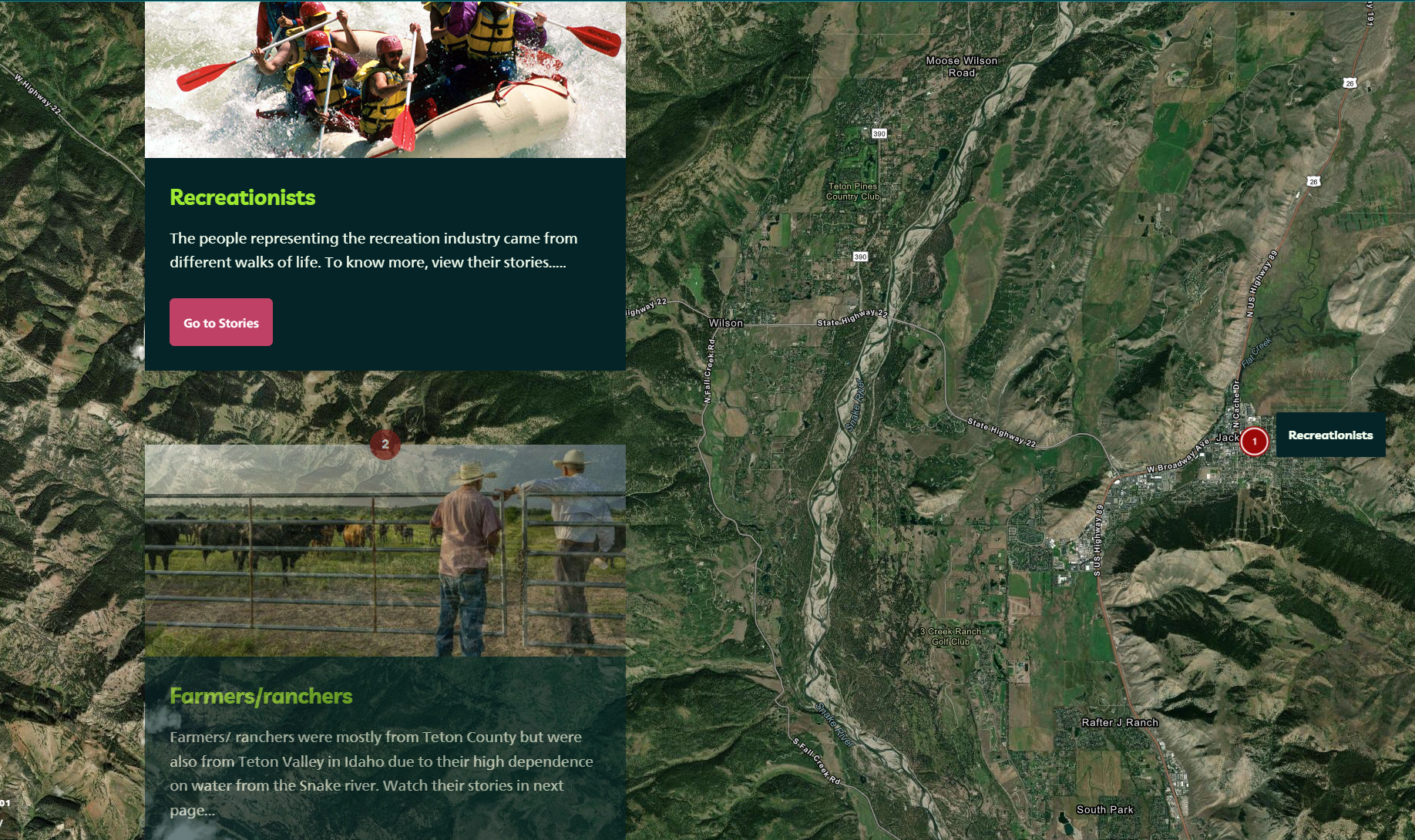
|
Using Wyoming-Based Stories & Data to Understand Change | InTheClassroom AnalyzingAndInterpretingData ScenarioThinkingAndNarratives ClimateData | Kimberly Harper, a high school science teacher, created a lesson series rooted in stories of Wyoming's changing water. Using Wyoming-based stories and data, students analyze local climate projections,... | Grades 9-12 | Educator-Created Resources |
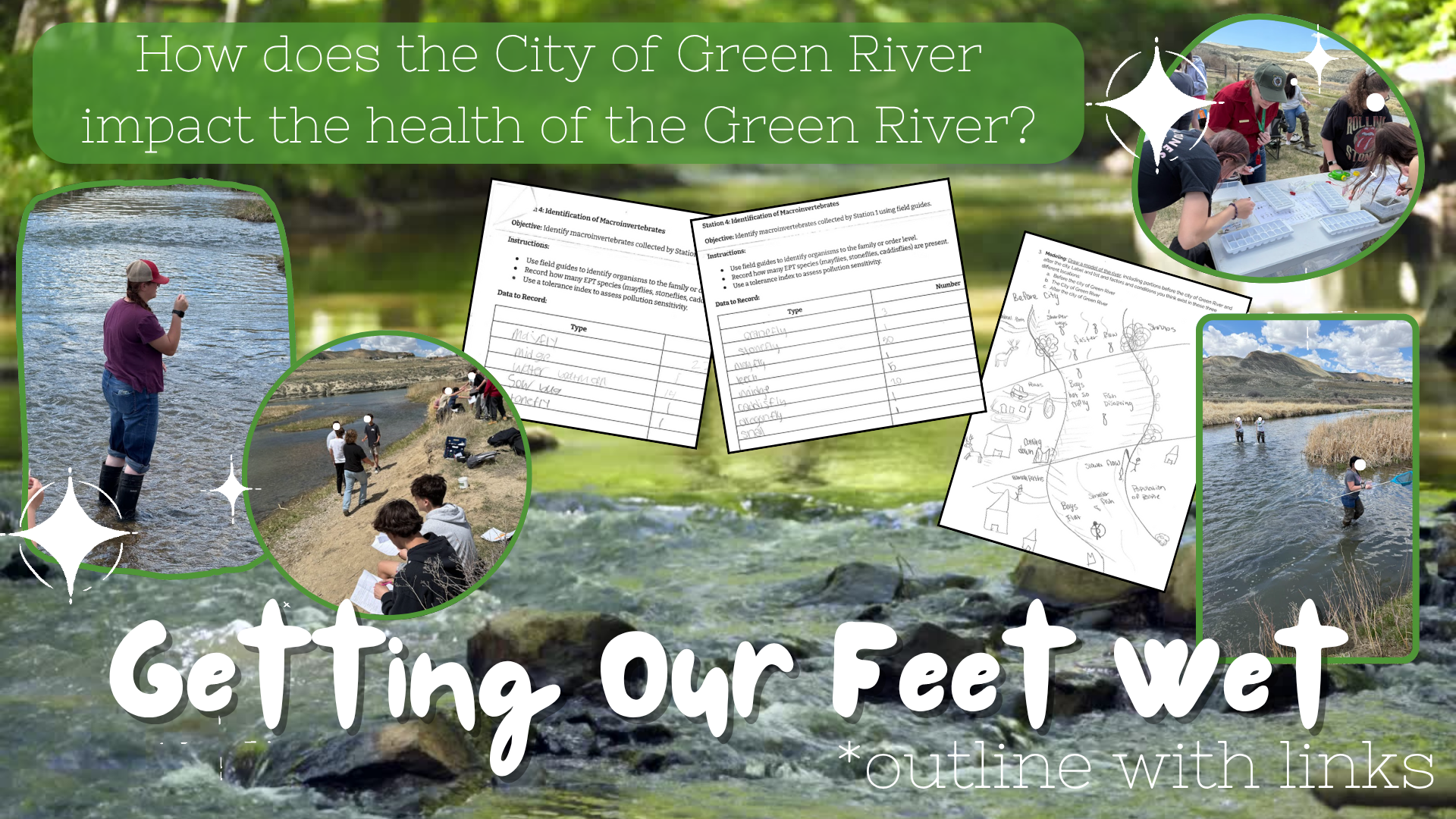
|
Getting Our Feet Wet | InTheField InTheClassroom AnalyzingAndInterpretingData CommunityEngagement StudentResearch DataVisualization | Megan Allen and Shawna Mattson, high school science teachers in Green River, developed this field-based unit to help students investigate the question: "How does the City of Green River impact the hea... | Grades 9-12 | Educator-Created Resources |
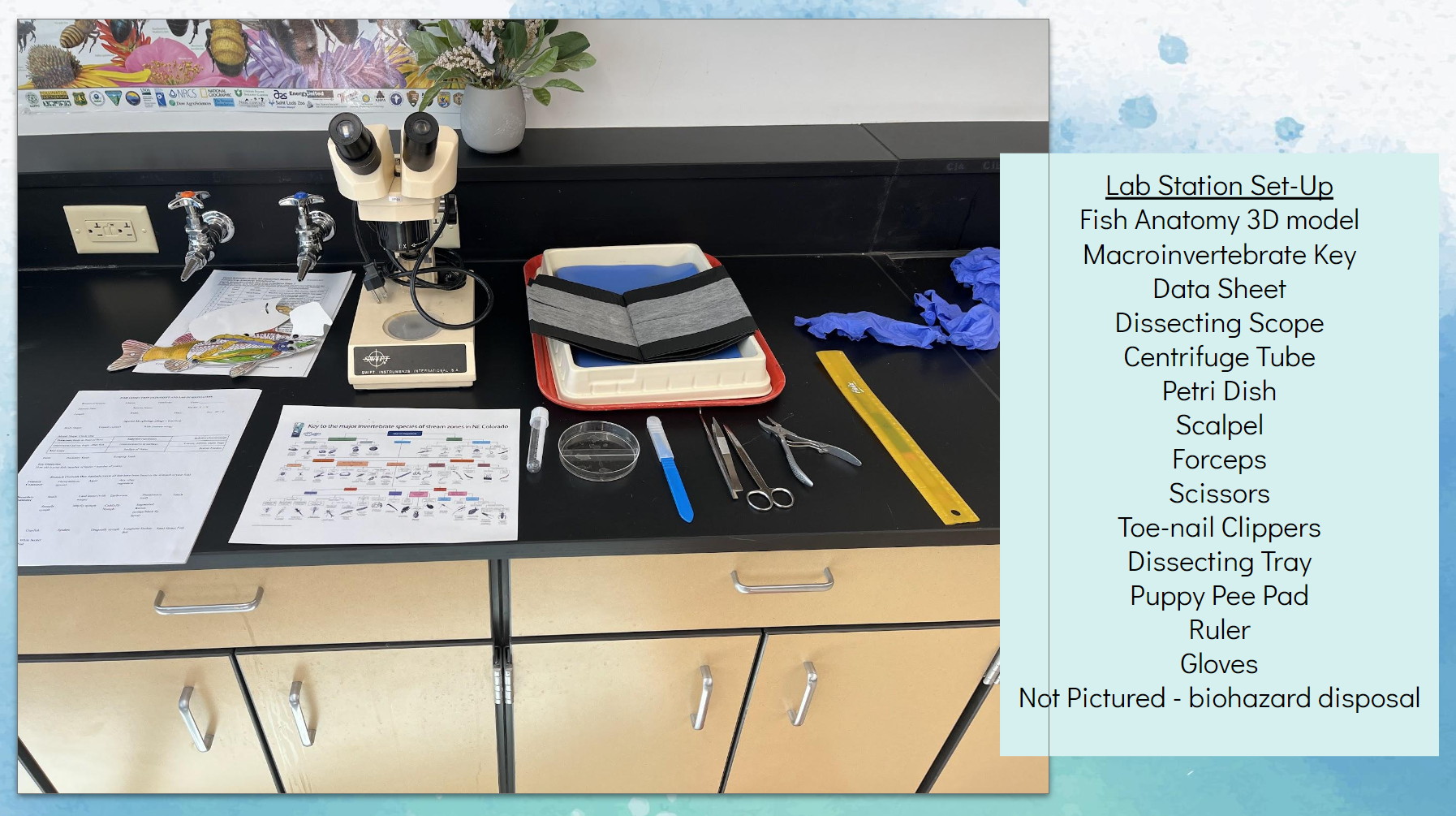
|
A Tale of Two Lakes | InTheClassroom AnalyzingAndInterpretingData StudentResearch DataVisualization | Jenny Edwards, a high school science teacher, created this unit to engage students in analyzing biotic and abiotic interactions in aquatic ecosystems using real-world data. By comparing Alcova and Pat... | Grades 9-12 | Educator-Created Resources |
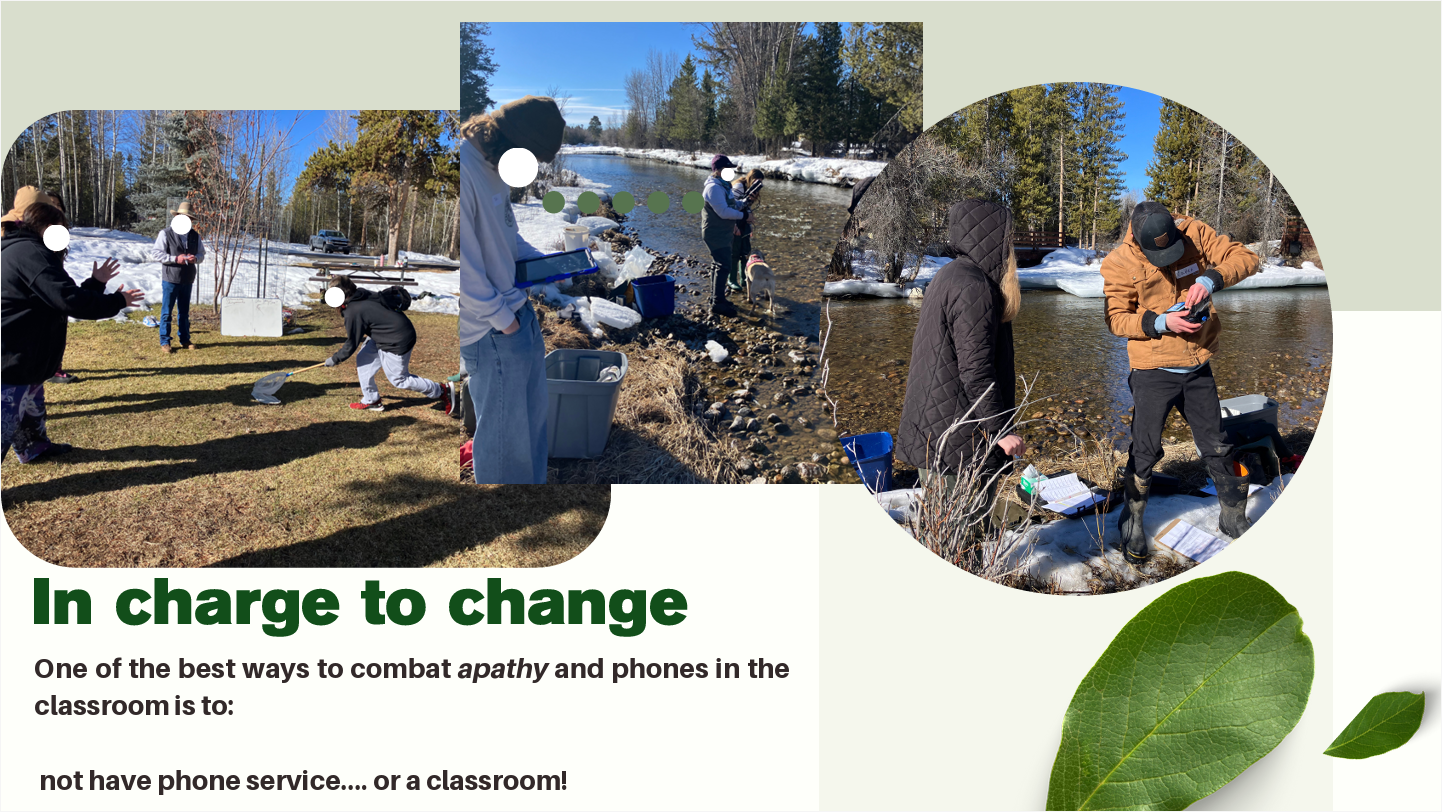
|
How to Take Standards-Driven Field Trips | InTheField Assessment StudentResearch CareerConnections | Jamie Bellian, a high school science teacher, designed an approach to make field learning standards-driven, inclusive and meaningful. By combining Universal Design for Learning (UDL) principles, stron... | Grades 9-12 | Educator-Created Resources |
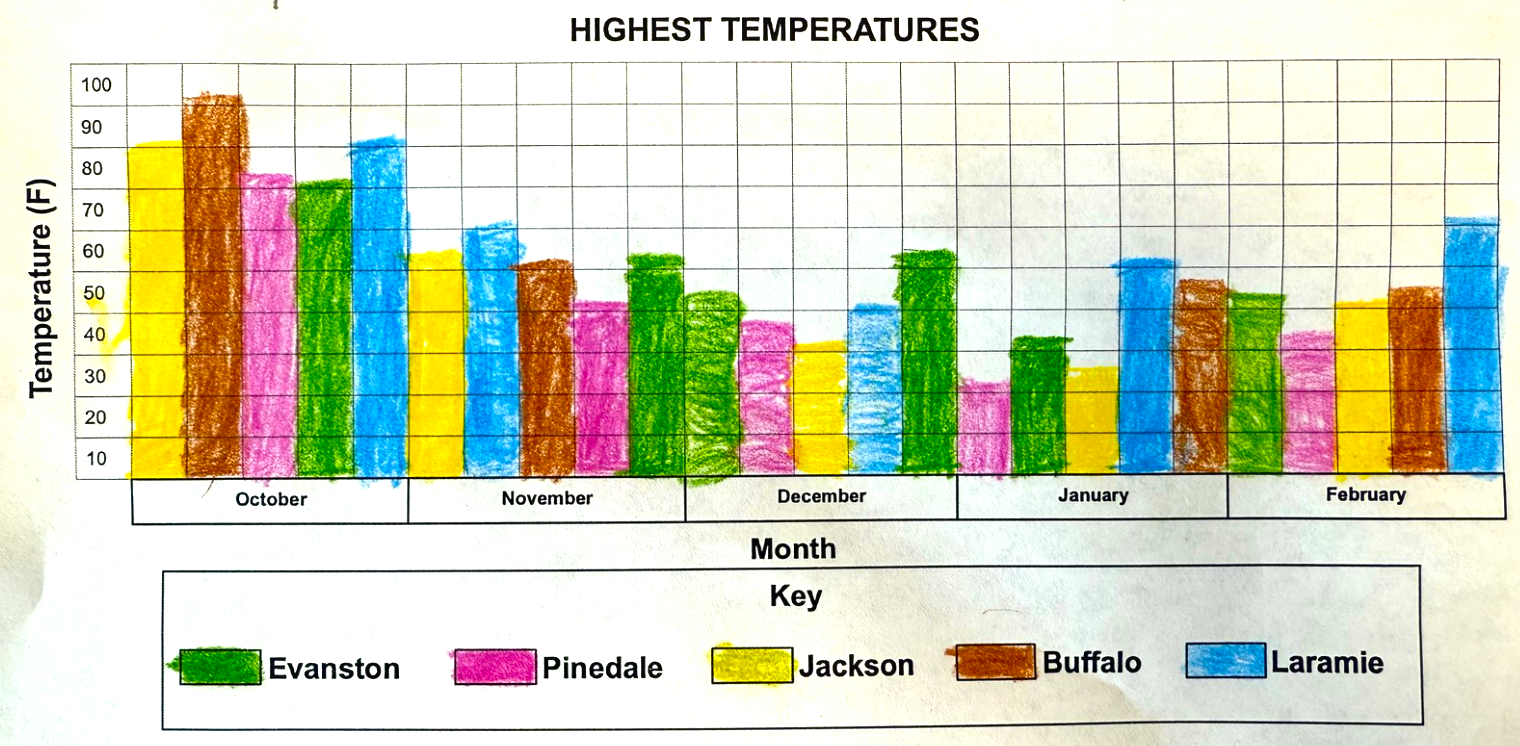
|
Weather Station Data Sharing | AnalyzingAndInterpretingData ClimateData DataVisualization StudentResearch InTheField InTheClassroom | A team of elementary science teachers (Josh Cox, Liz David, Andrea Hayden, Kelli Petrick, and Becky Qualm) developed this collaborative statewide project. The goal was to give students authentic, plac... | Grades 3-5 | Educator-Created Resources |
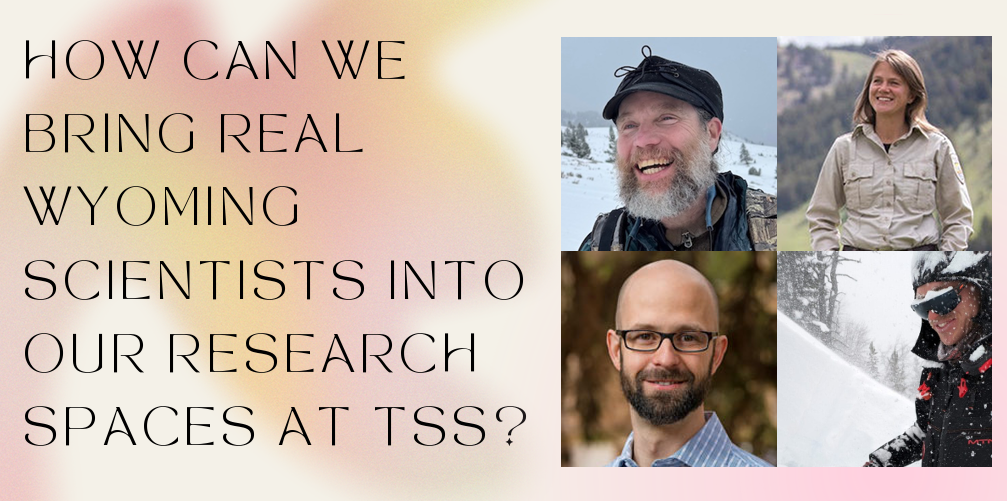
|
Field Notes & First Steps | InTheField StudentResearch Videos CareerConnections AnalyzingAndInterpretingData | Ruby Jenco, a field instructor at Teton Science Schools (TSS), developed a set of winter videos to connect students with Wyoming scientists and support authentic field research experiences. Each "Rese... | Grades 3-5 Grades 9-12 Grades 6-8 | Educator-Created Resources |
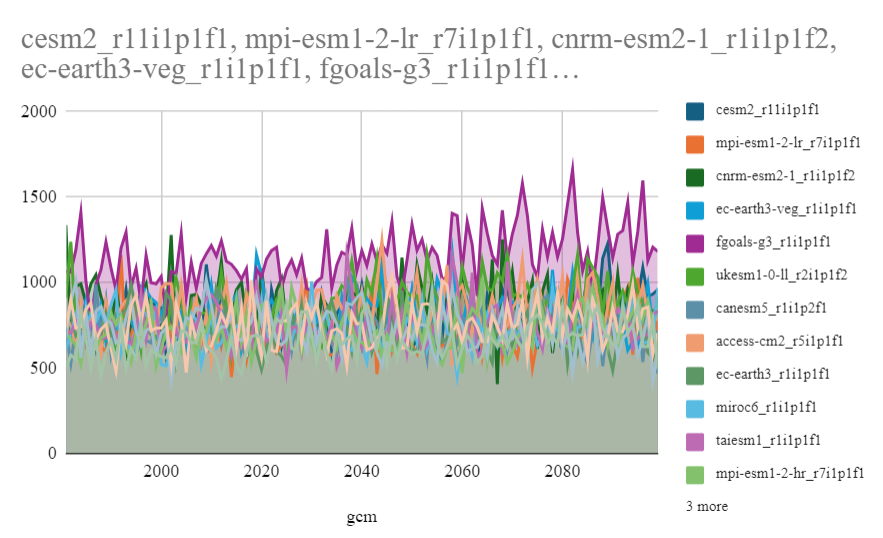
|
Building Climate Knowledge | UncertaintyInScience ClimateData InTheClassroom AnalyzingAndInterpretingData | Chelsea Lund, a high school science teacher, developed this lesson to give students practice working with messy climate data. The activity emphasizes experiential learning and student engagement with ... | Grades 9-12 | Educator-Created Resources |
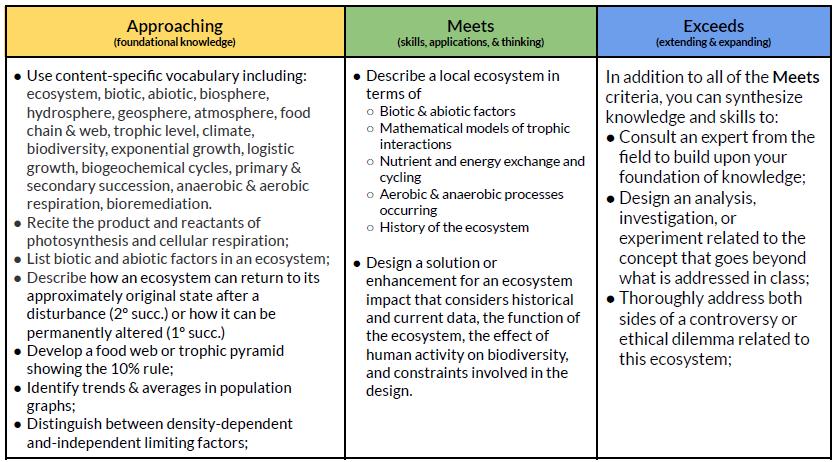
|
Alternative Assessment for Environmental Data | AnalyzingAndInterpretingData Assessment InTheClassroom InTheField UncertaintyInScience | Jules Craft, a high school science teacher, recognized the need for alternative assessment formats through her participation in TRKE. She created a project-based assessment for her ecosystem impact un... | Grades 9-12 | Educator-Created Resources |
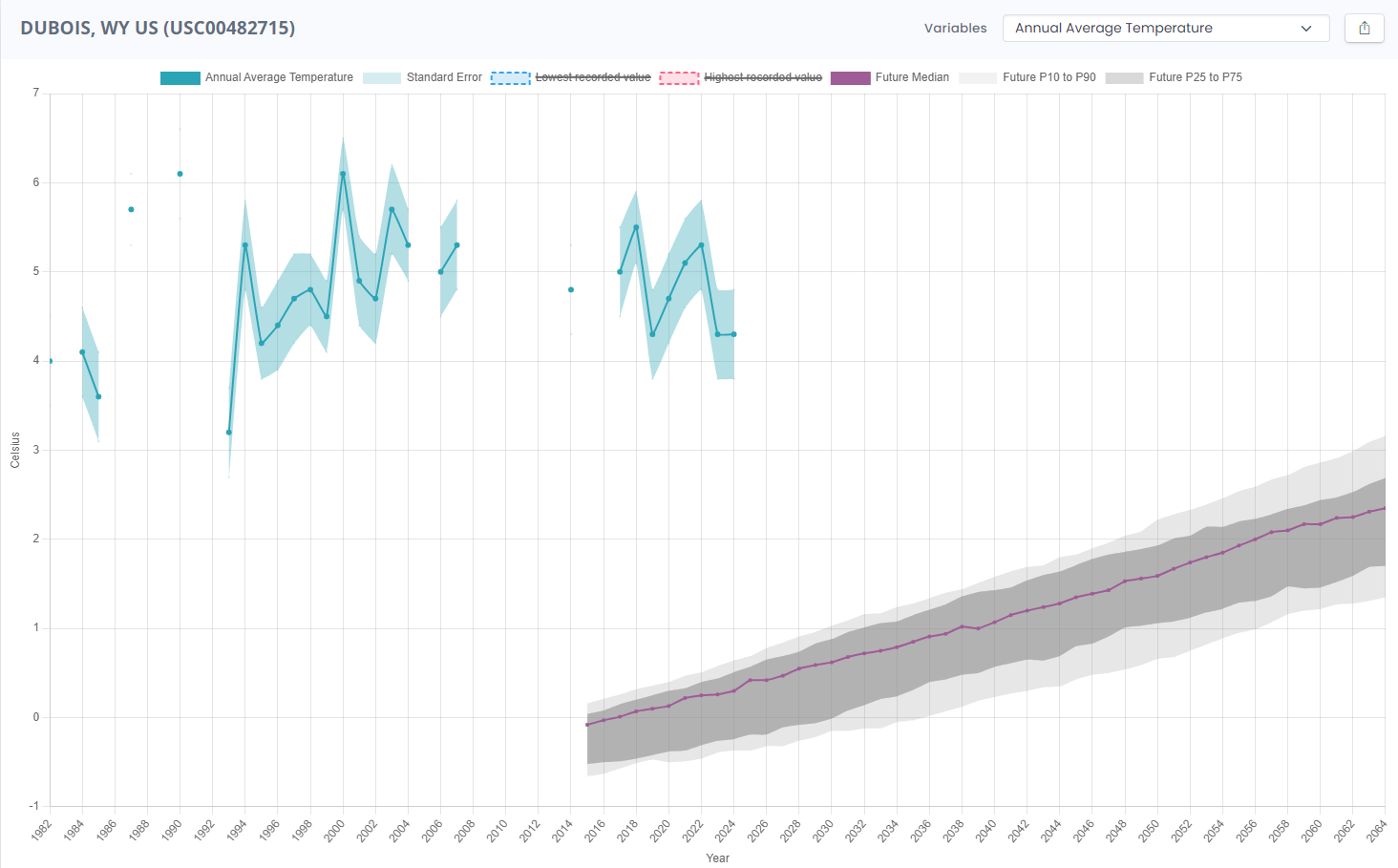
|
When the Data Doesn't Match | ClimateData AnalyzingAndInterpretingData UncertaintyInScience | This lesson engages students in comparing observed weather station data with modeled climate data using WY-Adapt. Through this exploration, students encounter two key types of scientific uncertainty: ... | Grades 9-12 | Program-Created Resources |
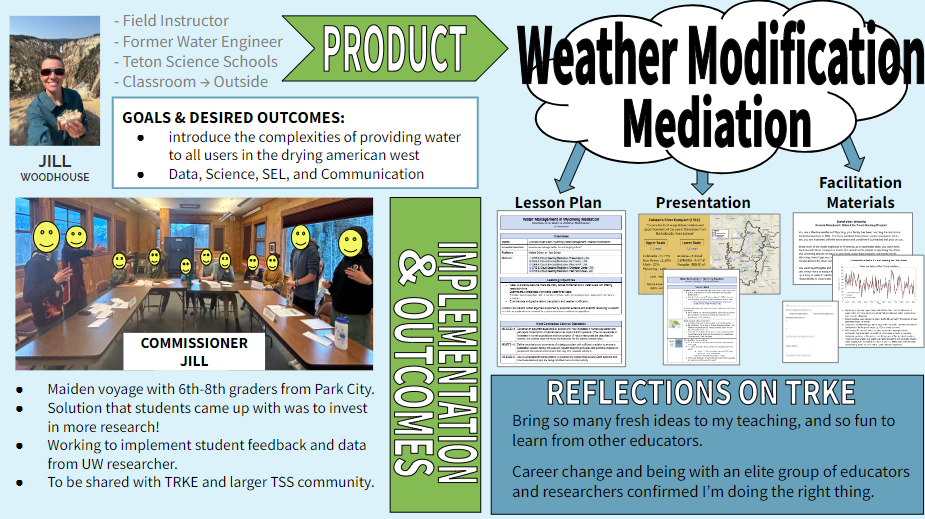
|
Managing WY Water for a Changing Future | ClimateData ScenarioThinkingAndNarratives InTheClassroom | Jill Woodhouse, a field instructor and former water engineer, developed this cloud seeding mediation lesson to help students explore the complexities of water use and changing weather in the drying Am... | Grades 9-12 Grades 6-8 | Educator-Created Resources |
Recent Posts:
All Posts
| Image | Title | Tags | Overview |
|---|---|---|---|
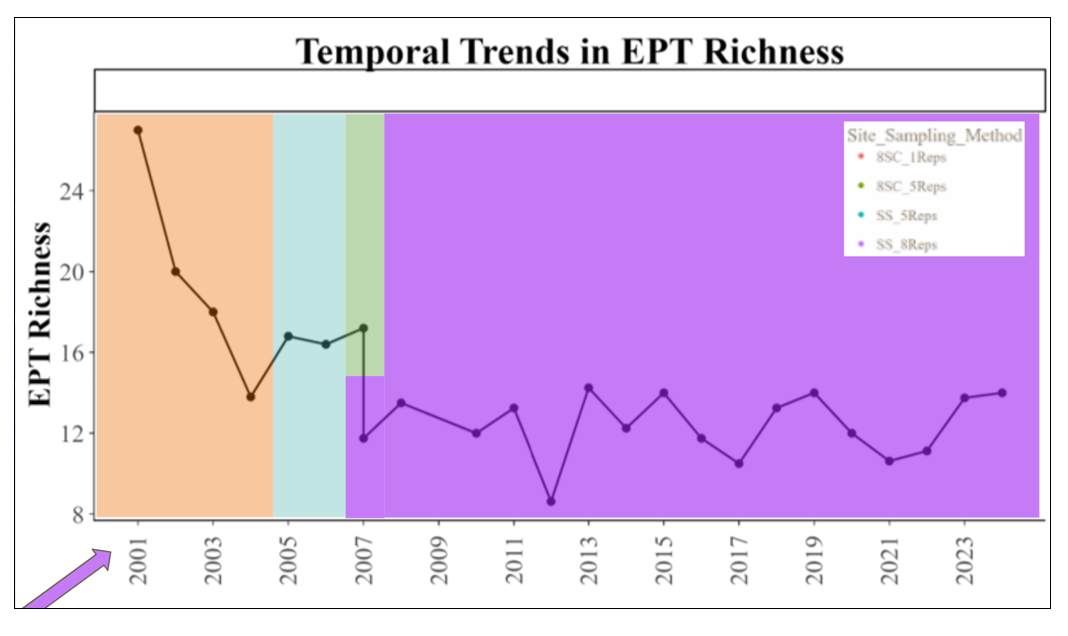
|
Data Check-In: Macros as Indicators | AnalyzingAndInterpretingData DataCheck-in InTheClassroom | During our December 9th, 2025 Virtual Session we had participants engage with macroinvertebrate data collected by the Sublette County Conservation District. Many of our educators have used macroinvertebrate data in their classrooms, so we wanted to p... |
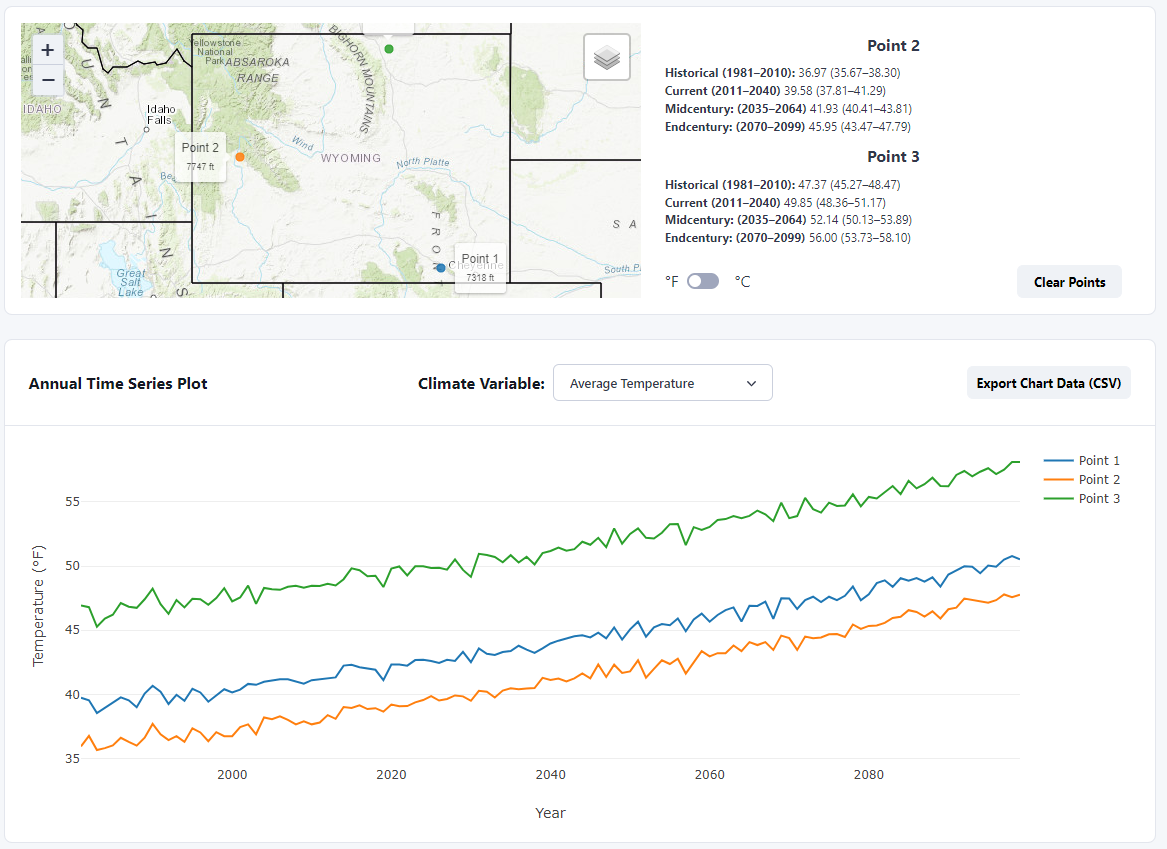
|
Climate Comparison Tool | WyAdaptConnected DataVisualization AnalyzingAndInterpretingData InTheClassroom | Educators asked for a way to compare climate data from multiple locations, and the WY-Adapt team delivered. This Climate Comparison tool lets users select multiple points on a map and compare modeled climate variables--such as temperature and precipi... |
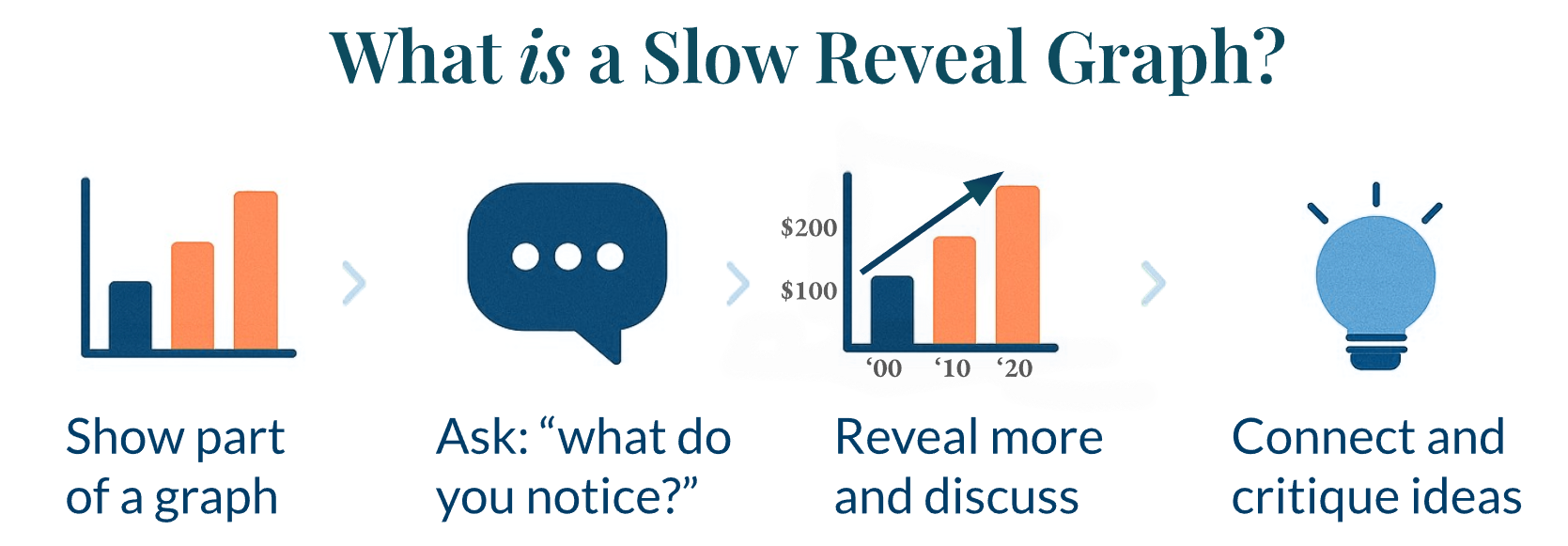
|
Data Check-In: The Slow Reveal Strategy | AnalyzingAndInterpretingData DataCheck-in InTheClassroom WyAdaptConnected ClimateData | We designed this check-in to demonstrate how the slow reveal method can be used to help learners make sense of data visualizations. Instead of presenting a complete graph all at once, components are revealed in stages. At each stage, learners are inv... |
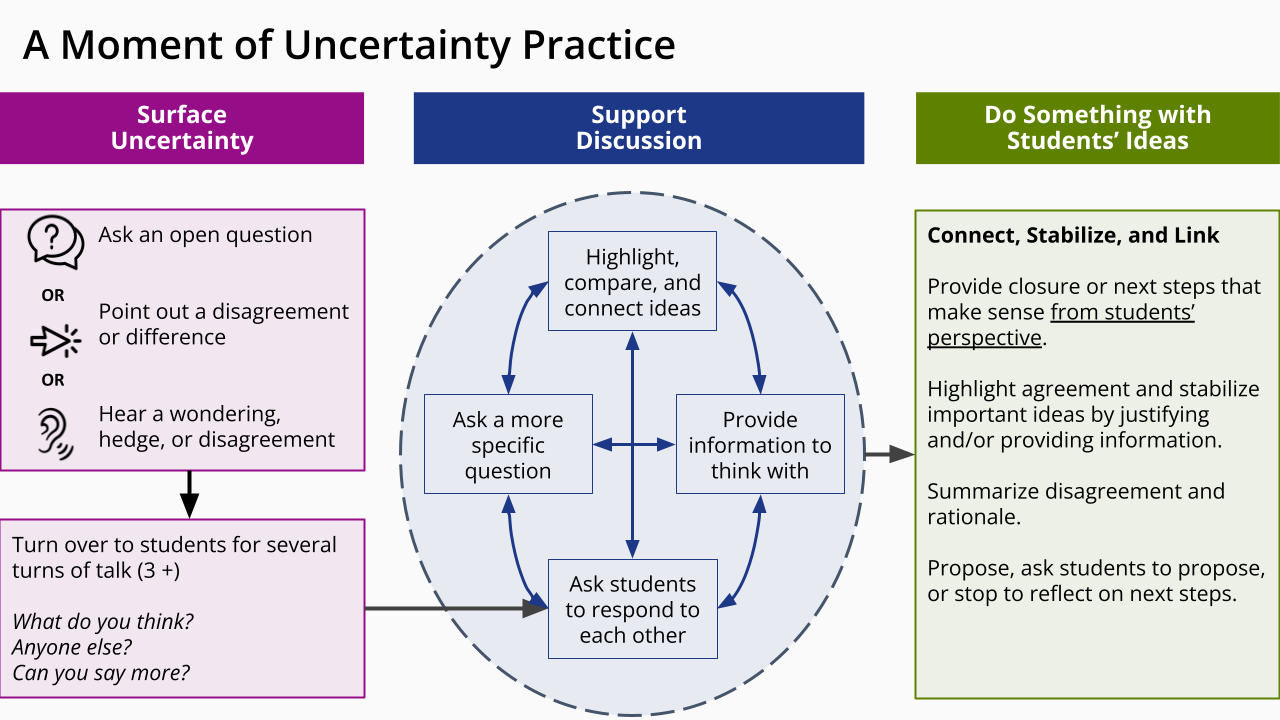
|
The Moment of Uncertainty Framework | UncertaintyInScience AnalyzingAndInterpretingData InTheClassroom InTheField | The Moment of Uncertainty framework is a vetted and research-based approach for students to explore scientific uncertainty. It was developed through the Investigations Project and grounded in the work of science education scholar Eve Manz. It he... |
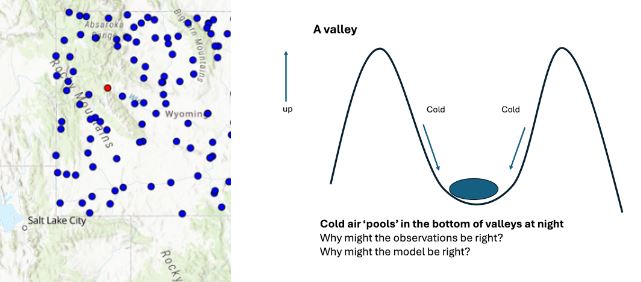
|
Model Bias: The Truth is Complicated | UncertaintyInScience AnalyzingAndInterpretingData ClimateData DataVisualization WyAdaptConnected InTheClassroom | This activity enables participants to explore, analyze, and visualize climate model data alongside observed temperature data with user-friendly dashboards from WY-Adapt created by the Wyoming Anticipating the Climate-Water Transition (WyACT) tea... |
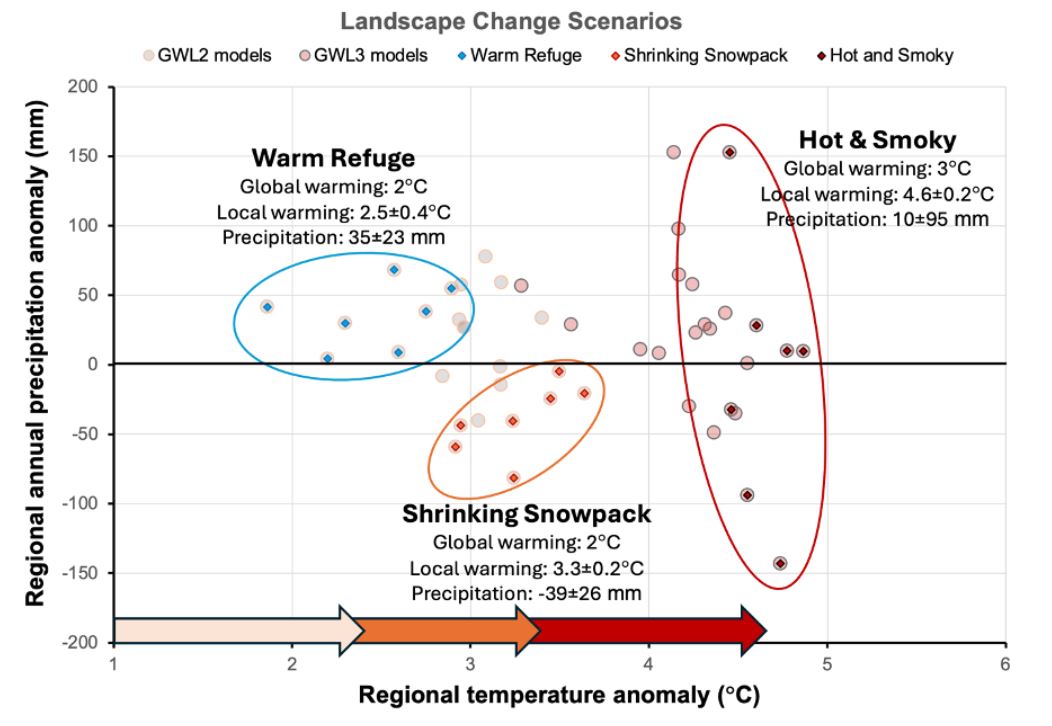
|
Scenario Planning and Uncertainty | UncertaintyInScience InTheClassroom ScenarioThinkingAndNarratives | This breakout activity invites students to engage with three future scenario narratives to explore how storytelling can illuminate uncertainty in climate adaptation planning. Through discussion and reflection, learners consider how different futures ... |
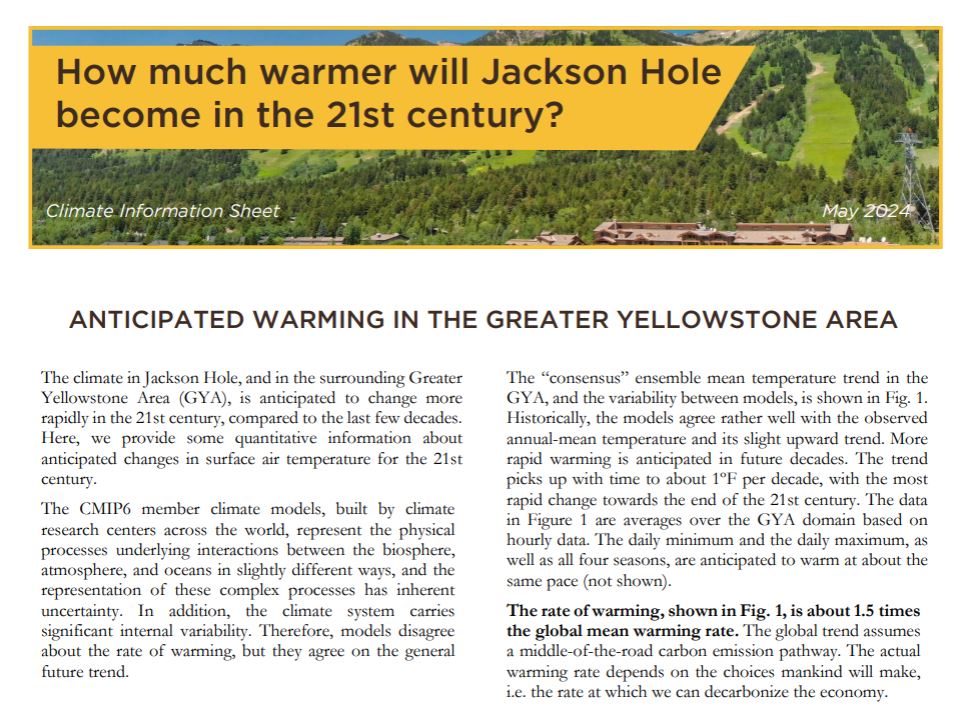
|
Data Check-In: Data Exploration Through Fact Sheets | DataCheck-in ClimateData InTheClassroom AnalyzingAndInterpretingData | We designed this check-in to use 1-page handouts called "factsheets" that synthesize climate and water data into an accessible format. Each factsheet centers around a question people might be interested in and tries to provide a short answer to that ... |

|
Data Check-In: "Taking the Temperature of WY Public Opinion on Adapting to Climate & Water Change” | DataCheck-in AnalyzingAndInterpretingData InTheClassroom | We designed this check-in to use a climate opinion survey to demonstrate how qualitative data can provide context for conversations around complex issues. Qualitative data provides students insight into people's experiences, thoughts and feelings and... |
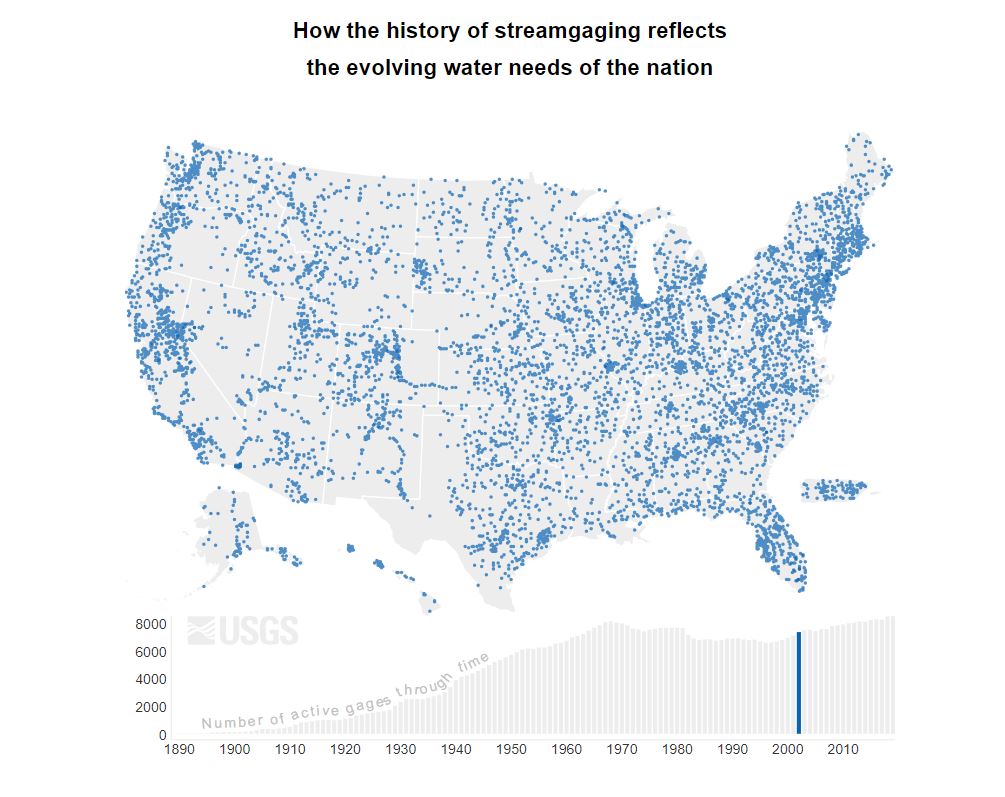
|
Data Check-In: Gages Through the Ages StoryMap | DataCheck-in ScenarioThinkingAndNarratives InTheClassroom AnalyzingAndInterpretingData | We designed this check-in to use a StoryMap. StoryMaps bring learning to life in classrooms by combining maps, multimedia, and storytelling. They help students explore subjects, build digital skills, and create interactive projects, making lessons en... |

|
Data Check-In: Exploring Lake Trends with WyADAPT | DataCheck-in AnalyzingAndInterpretingData WyAdaptConnected DataVisualization InTheClassroom | We designed this check-in to use an application dashboard from WY-Adapt created by the Wyoming Anticipating the Climate-Water Transition (WyACT) team at the University of Wyoming. WY-Adapt is an interactive, web-based data science platform designed t... |
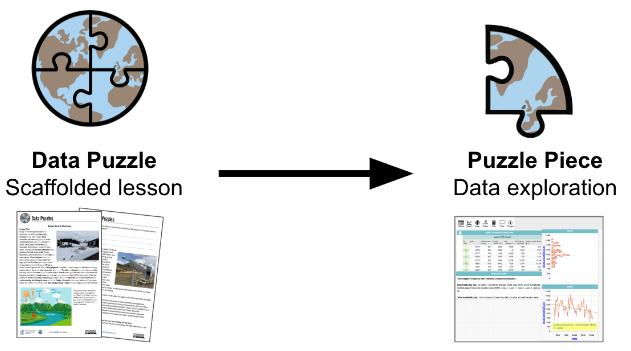
|
Data Check-in: Puzzle Pieces Connecting Students and Research | DataCheck-in AnalyzingAndInterpretingData InTheClassroom Videos | We designed this check-in to use parts of the Puzzle Pieces Collection within Data Puzzles, produced by the Cooperative Institute for Research in Environmental Sciences (CIRES) Center for Education, Engagement and Evaluation (CEEE) team. These C... |

|
Stream Gauge Data Analysis Tool | Rstudio AnalyzingAndInterpretingData DataVisualization InTheClassroom | The StreamGauge Data Analysis Tool enables users to download, analyze, and visualize streamflow data from the USGS with simple setup in R and RStudio. By plotting data from selected gauges to get annual value summaries, time-series trends can be deri... |
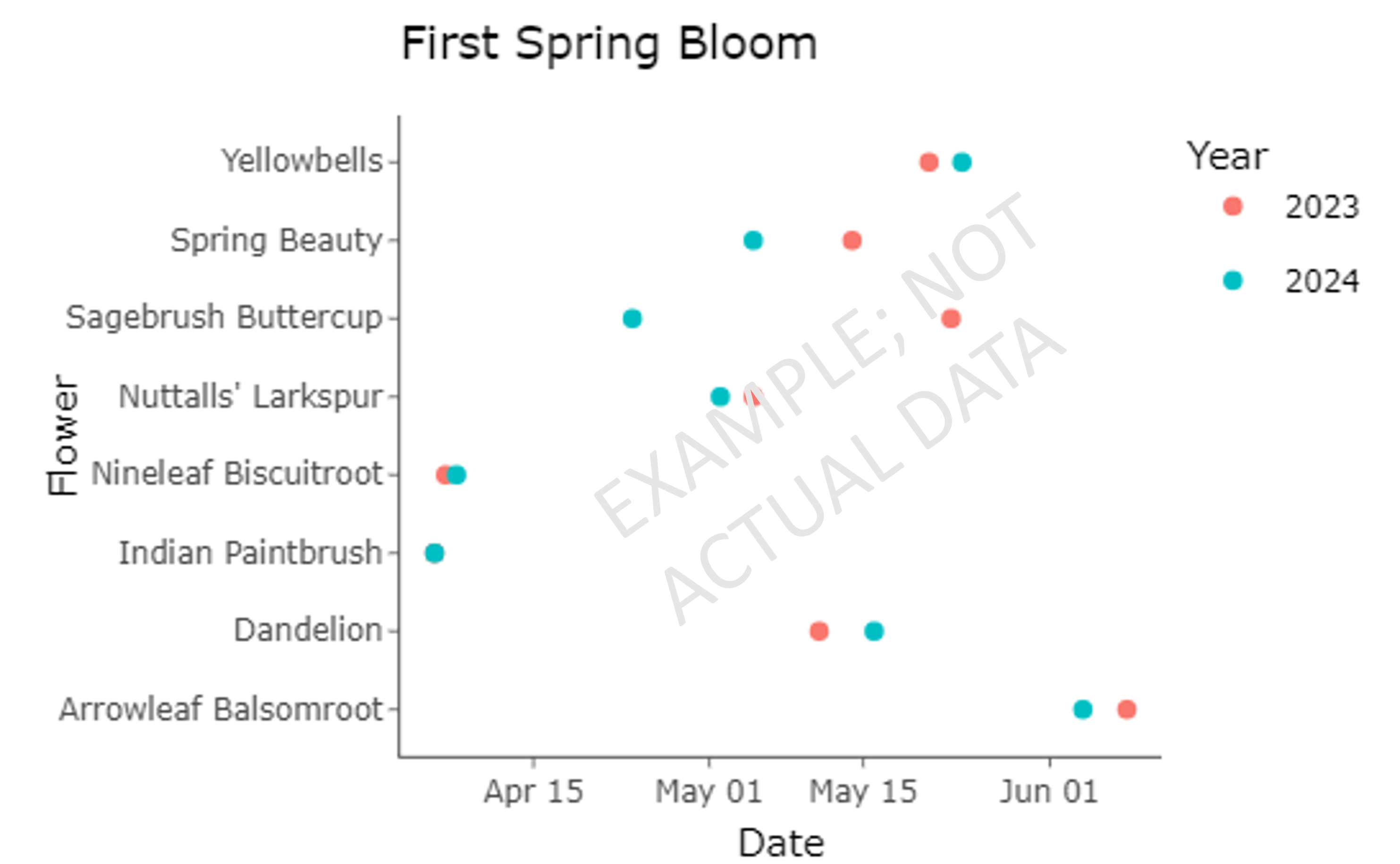
|
Wildflower Bloom Watch | AnalyzingAndInterpretingData DataVisualization Rstudio | Introducing our new Interactive Data Visualization Tool designed specifically for educators involved in classroom research. This tool enables you to collect, analyze, and visualize student data in real-time, enhancing your ability to make informed de... |
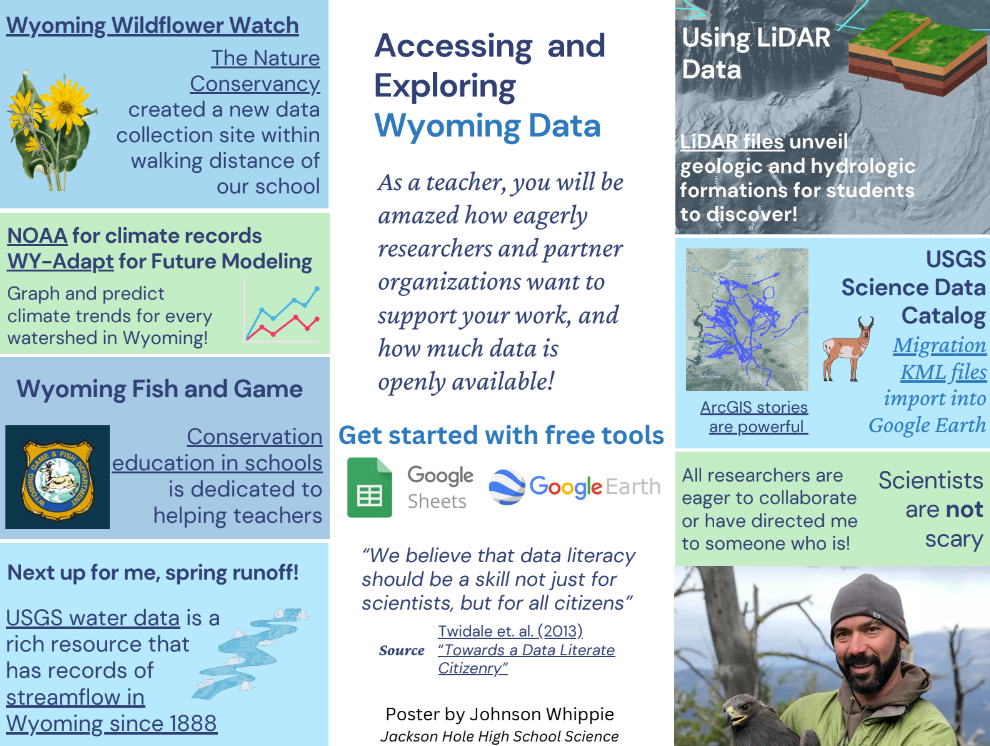
|
Accessing and Exploring Wyoming Data: Engaging Students with Free Tools and Local Resources | ClimateData InTheClassroom | Johnson Whippie’s project focuses on empowering teachers and students to access and explore publicly available data related to Wyoming’s natural environment. By utilizing free tools like Google Earth, USGS datasets, and NOAA records, students can eng... |
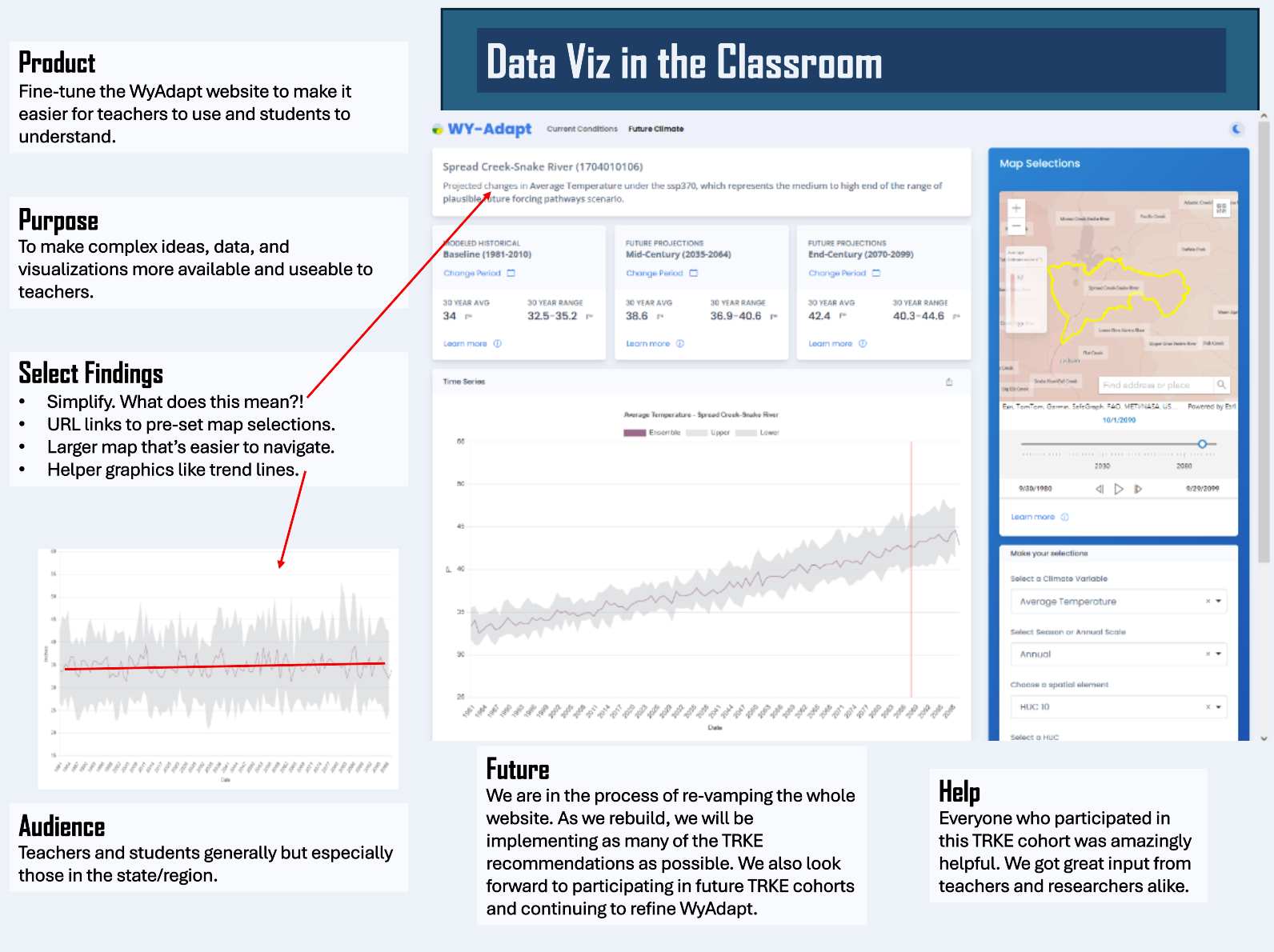
|
Data Visualization in the Classroom: Using WY-Adapt to Enhance Learning | DataVisualization ClimateData WyAdaptConnected InTheClassroom | Luke Todd's presentation, titled "Data Visualization in the Classroom," focuses on using data visualization tools to enhance student engagement and understanding, particularly in the context of climate and water education. Using the WY-Adapt program ... |
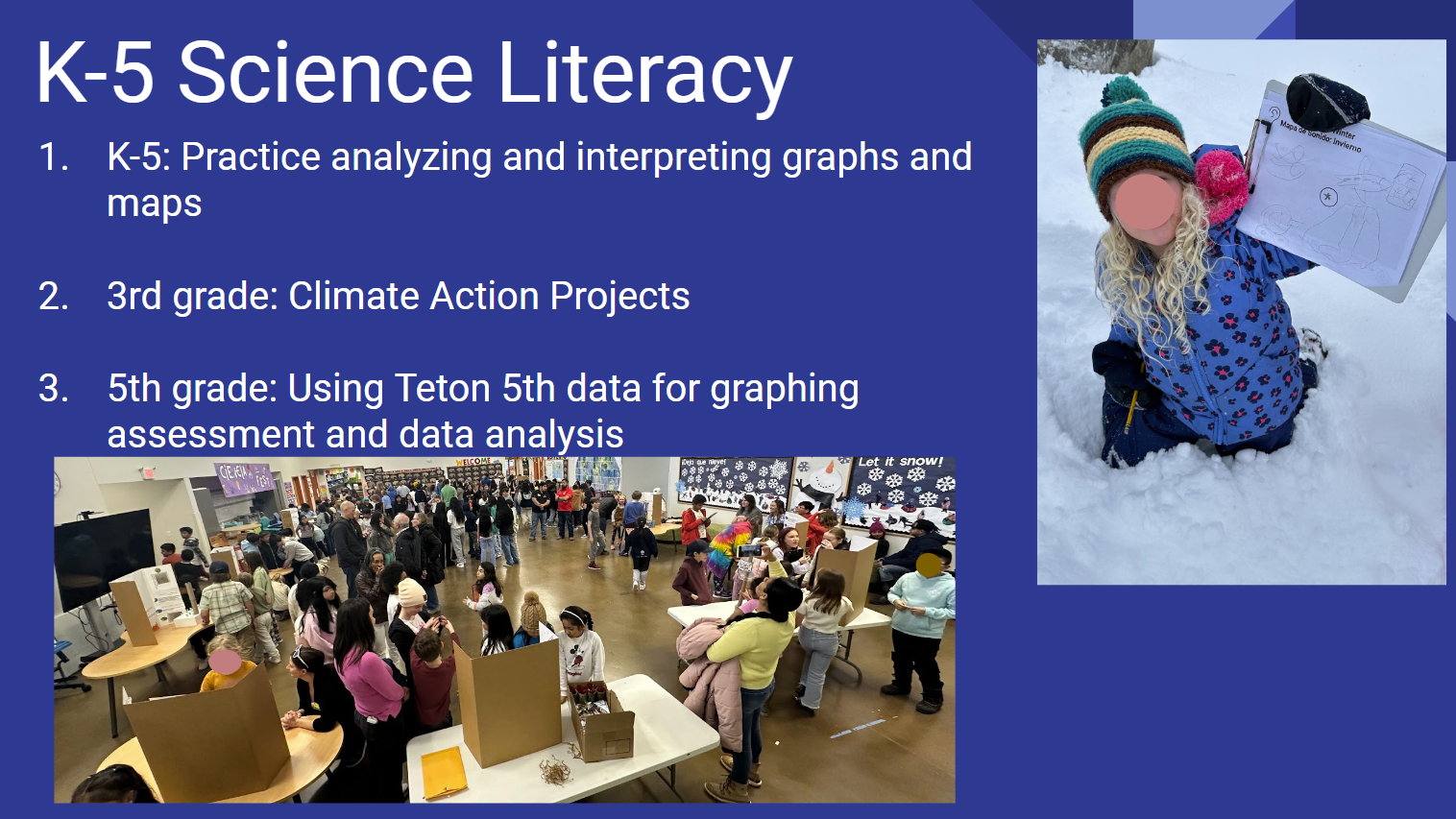
|
Building Science Literacy in K-5: Graphing, Climate Action, and Data Interpretation | AnalyzingAndInterpretingData ClimateData InTheClassroom DataVisualization | Kelli Petrick has developed a comprehensive science literacy program for K-5 students, focusing on improving their ability to analyze and interpret graphs and maps. Her approach integrates hands-on projects with real-world data to help students becom... |
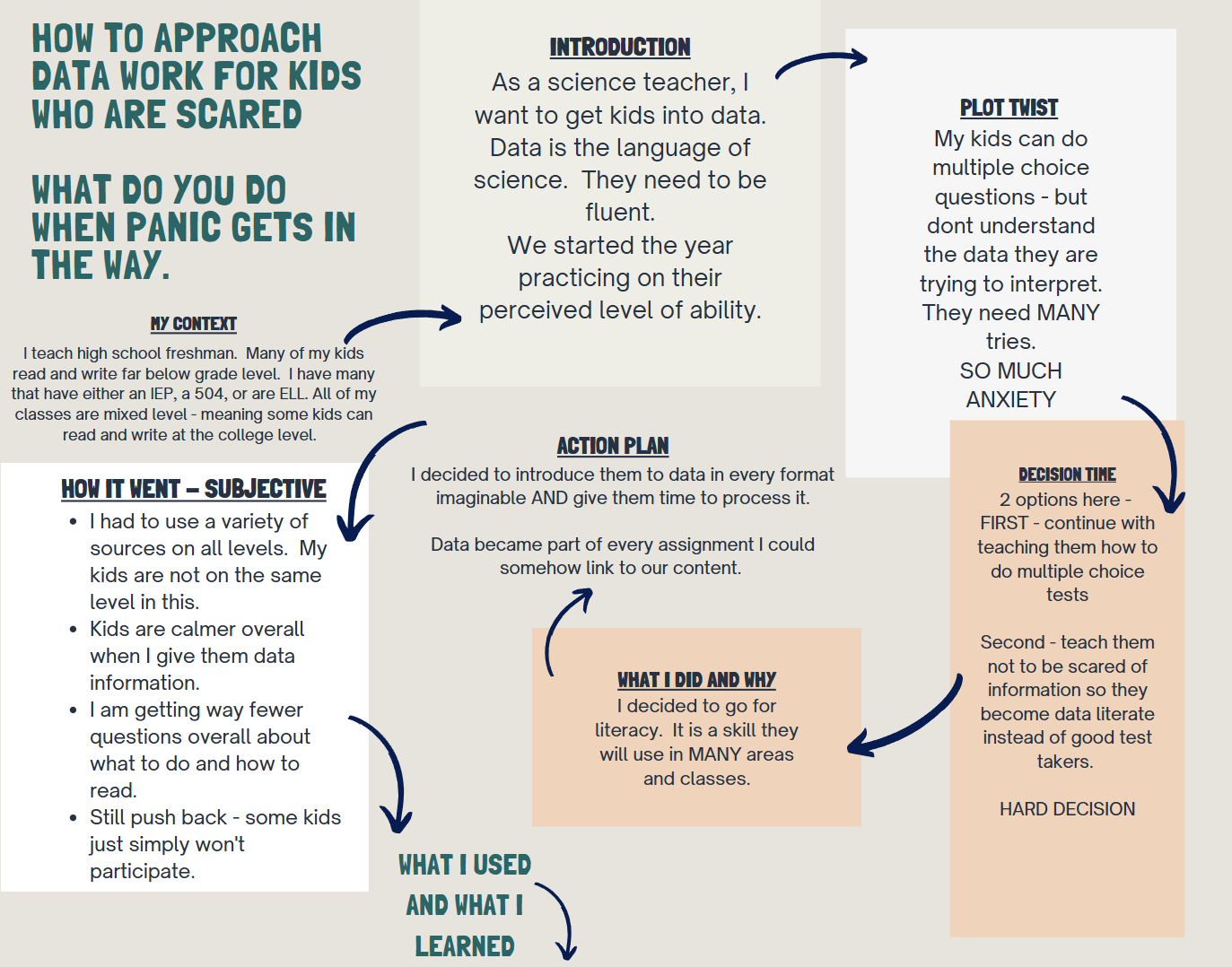
|
Building Data Literacy in High School Freshmen: Overcoming Anxiety and Embracing Curiosity | ScenarioThinkingAndNarratives InTheClassroom DataVisualization | In an innovative approach to education, a high school teacher has developed a program designed to help freshmen overcome their anxiety around data and engage more deeply with scientific inquiry. This initiative is part of an effort to make data liter... |
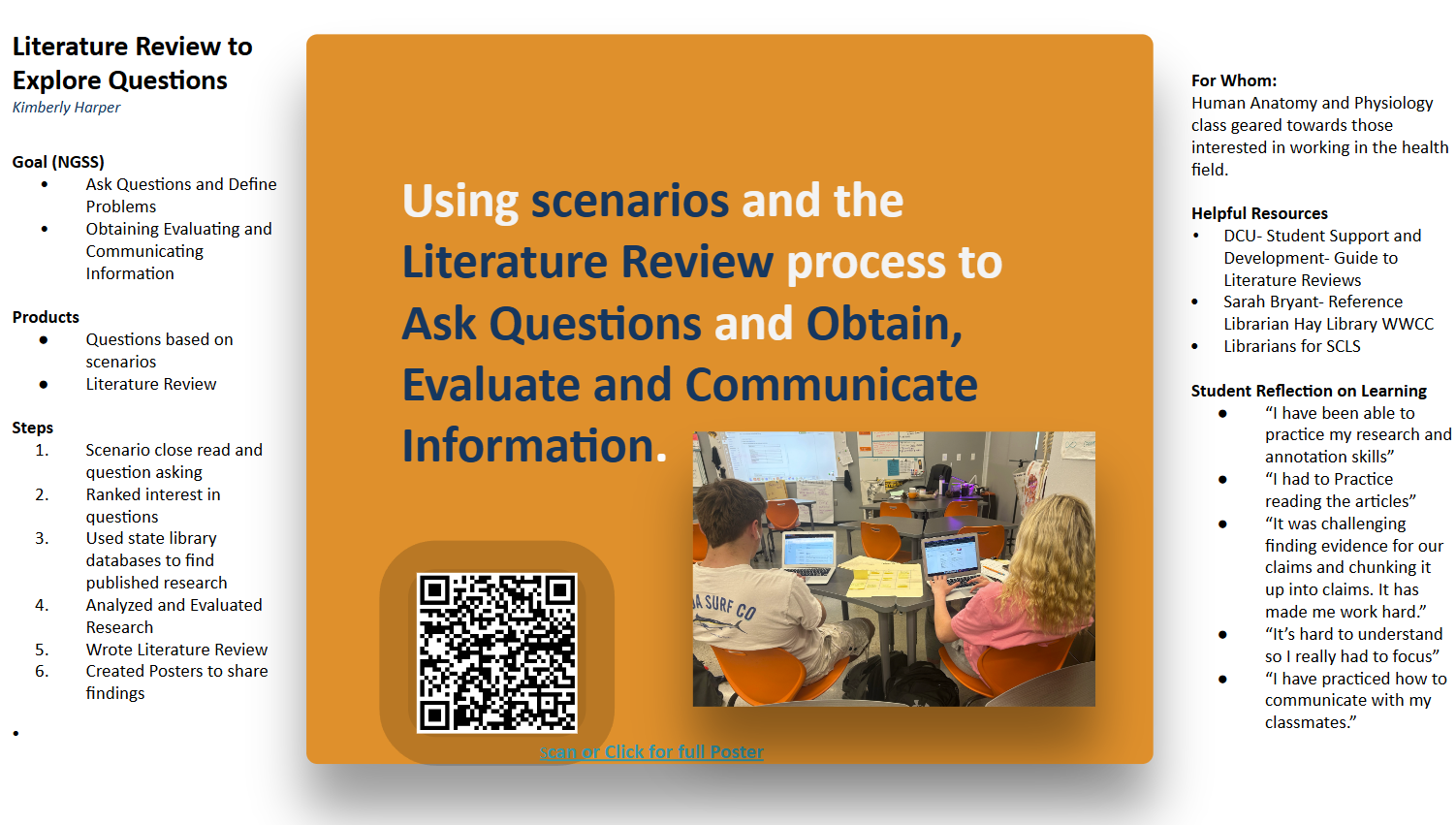
|
Empowering Students Through the Literature Review Process in Health Sciences | StudentResearch InTheClassroom AnalyzingAndInterpretingData CareerConnections | Kimberly Harper has introduced a rigorous literature review process in her Human Anatomy and Physiology class, aimed at students interested in the health field. This approach helps students develop critical research skills needed for their future car... |
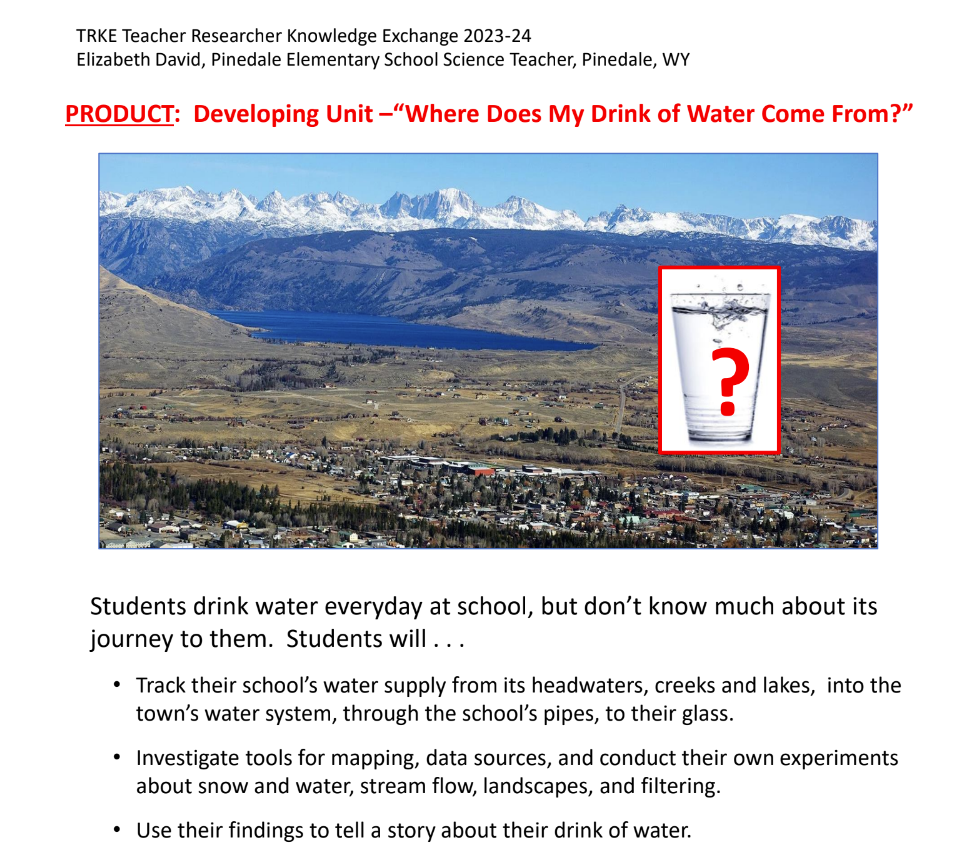
|
Exploring the Journey of Water: An Educational Unit by Elizabeth David | AnalyzingAndInterpretingData InTheClassroom DataVisualization | Elizabeth David, a science teacher at Pinedale Elementary School, has developed an innovative educational unit titled "Where Does My Drink of Water Come From?" This unit is designed to teach students about the journey of water from its source to thei... |
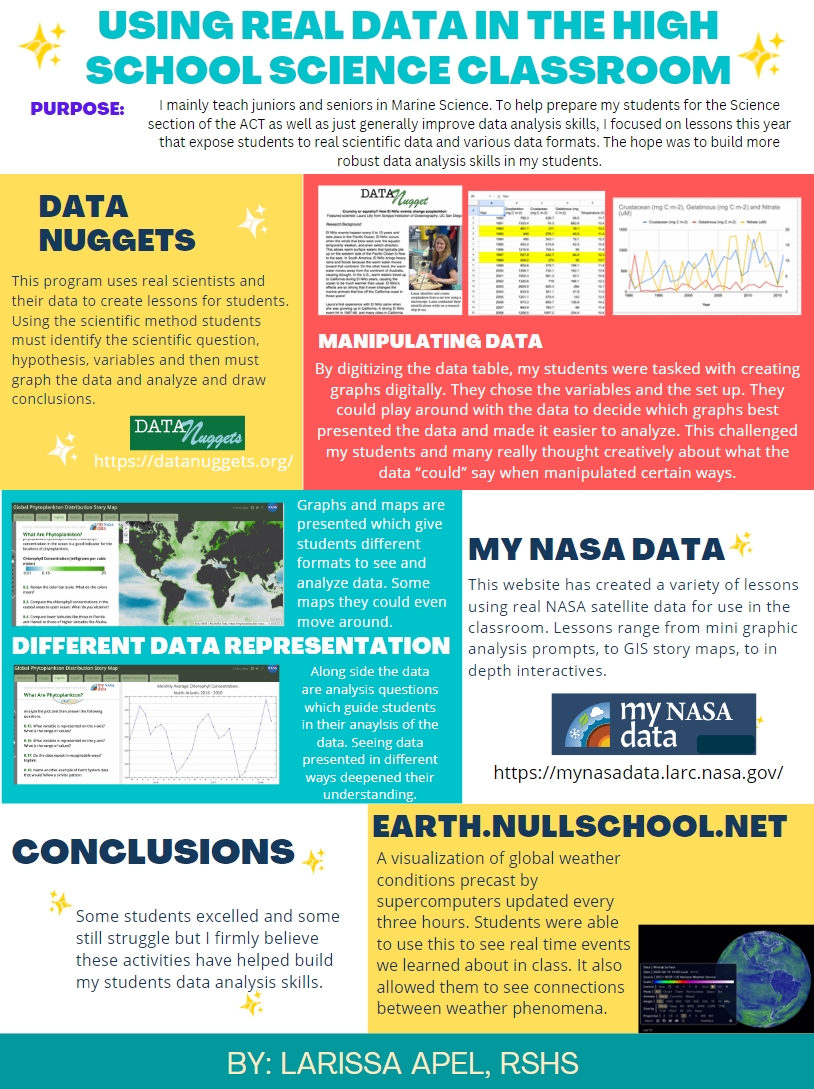
|
Enhancing Data Analysis Skills in Science Education with Real Data | AnalyzingAndInterpretingData DataVisualization InTheClassroom | Larissa Apel, a high school science teacher, focuses on using real-world data to enhance the analytical skills of juniors and seniors in Marine Science. Her approach involves integrating tools and resources that expose students to scientific data and... |
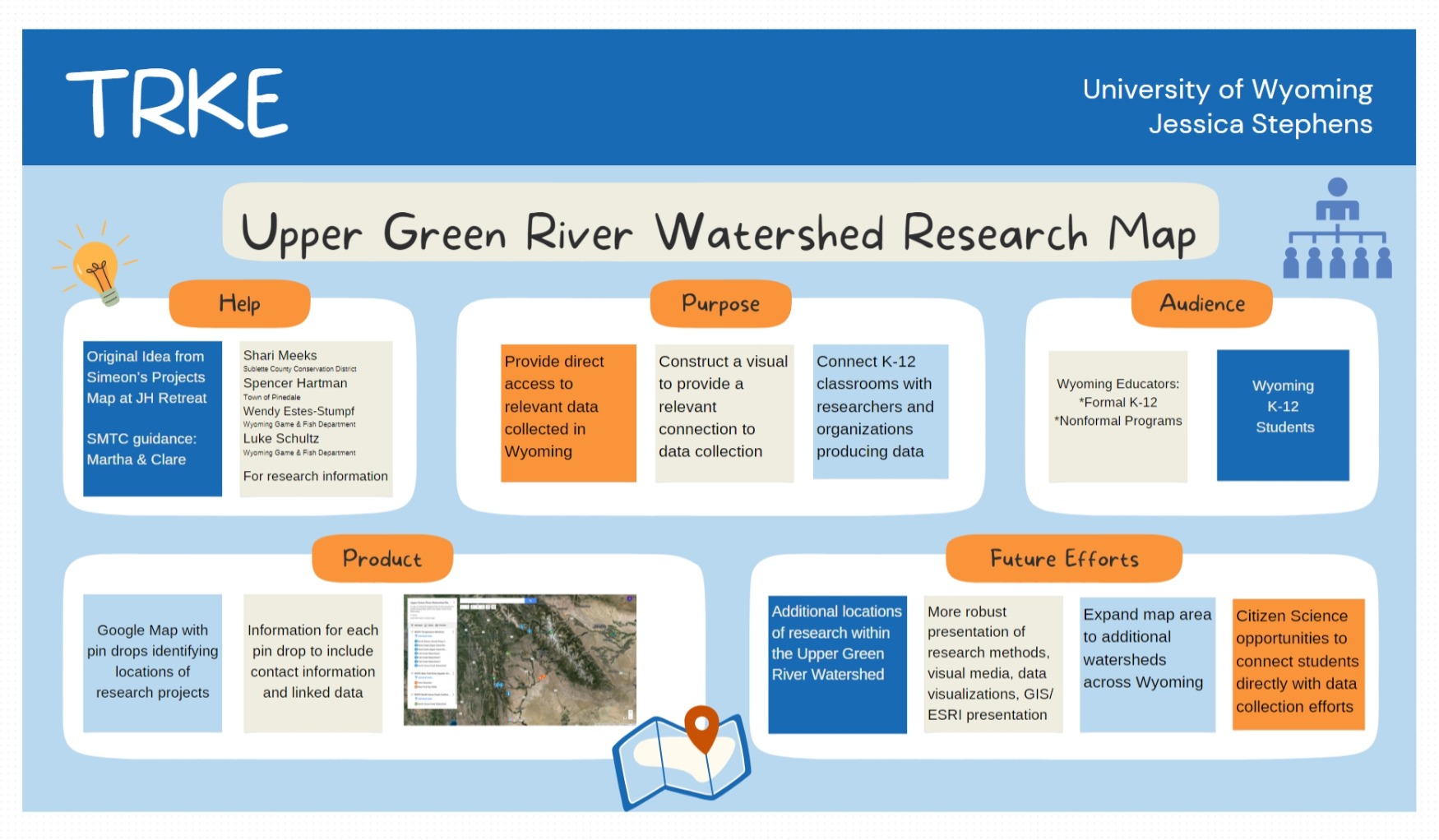
|
Mapping the Upper Green River Watershed: A Tool for Education and Research | InTheClassroom DataVisualization StudentResearch | Jessica Stephens from the University of Wyoming has developed an interactive map detailing various research projects throughout the Upper Green River Watershed. This map serves as a vital educational tool, providing direct access to geospatial data c... |
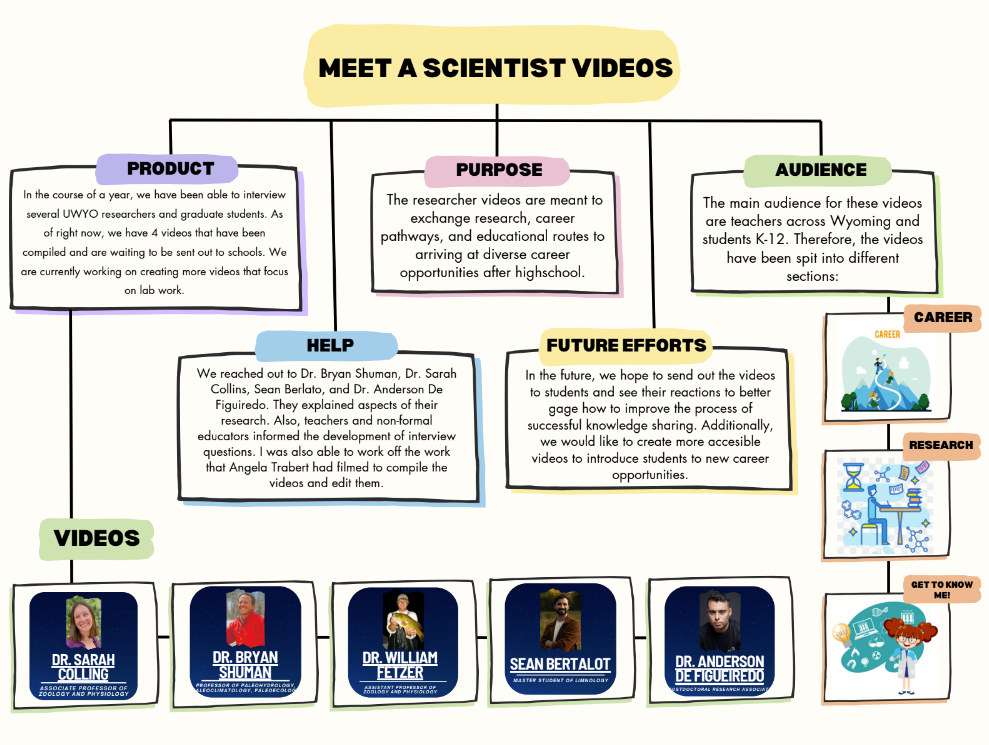
|
Meet a Scientist: Engaging K-12 Students with Real-World Researchers | CareerConnections Videos InTheClassroom | Juana Rodriguez has spearheaded an exciting initiative to create engaging video content featuring UWYO researchers and graduate students. These videos serve as a bridge connecting K-12 students with the world of scientific research, offering insights... |
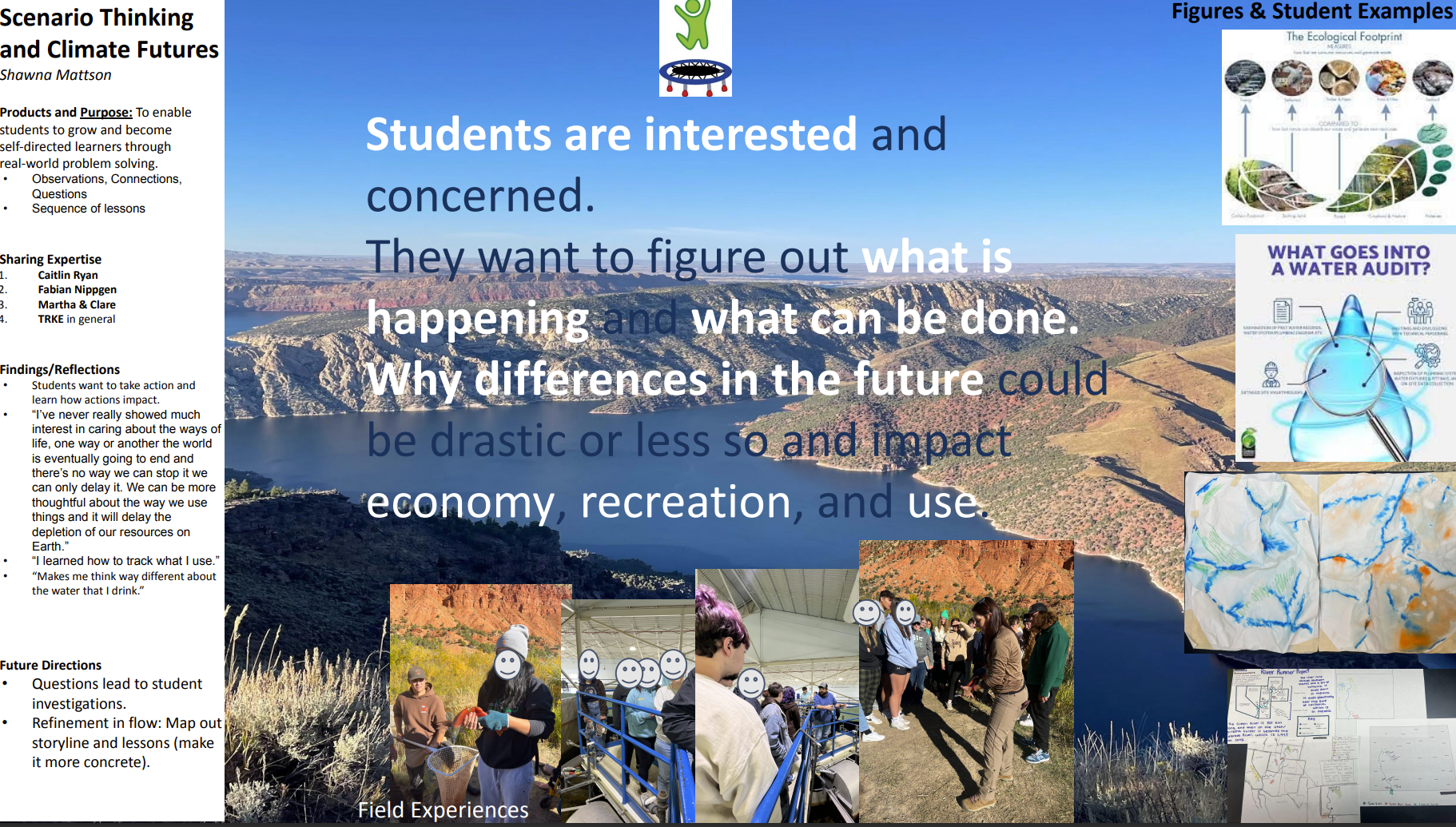
|
Empowering Students with Scenario Thinking in Climate Education | ScenarioThinkingAndNarratives InTheClassroom | Shawna Mattson has incorporated a transformative approach in her classroom by integrating scenario thinking into climate education, aiming to empower students as self-directed learners engaged in real-world problem-solving. |
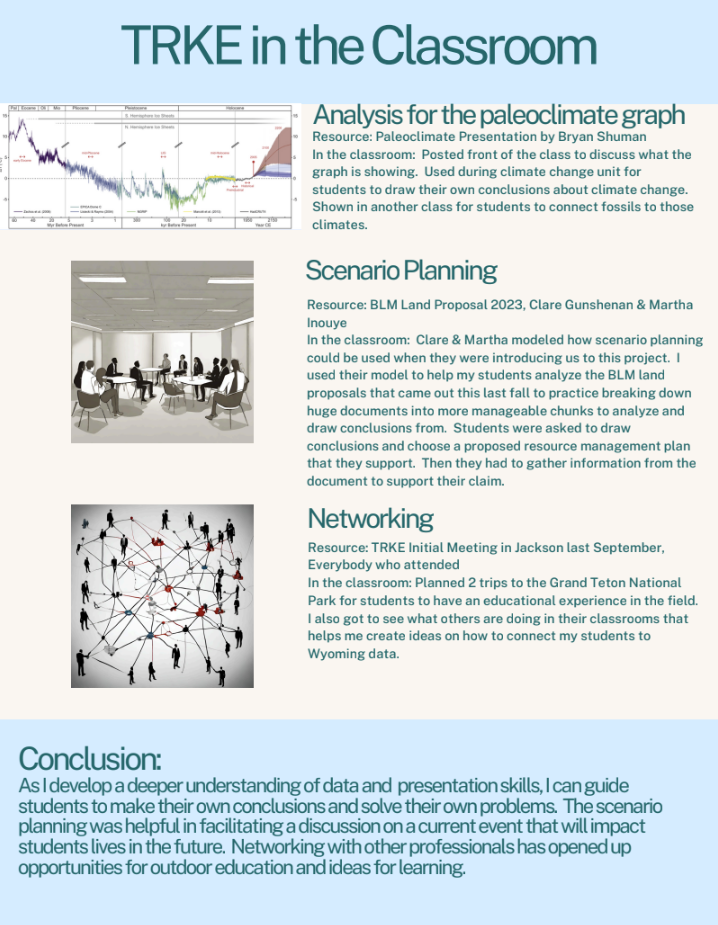
|
Enhancing Classroom Learning Through TRKE: Chelsea Lund's Approach | ScenarioThinkingAndNarratives InTheClassroom AnalyzingAndInterpretingData | Chelsea Lund has effectively incorporated various TRKE resources into her classroom, enhancing student engagement and understanding of complex subjects like climate change and land management. |
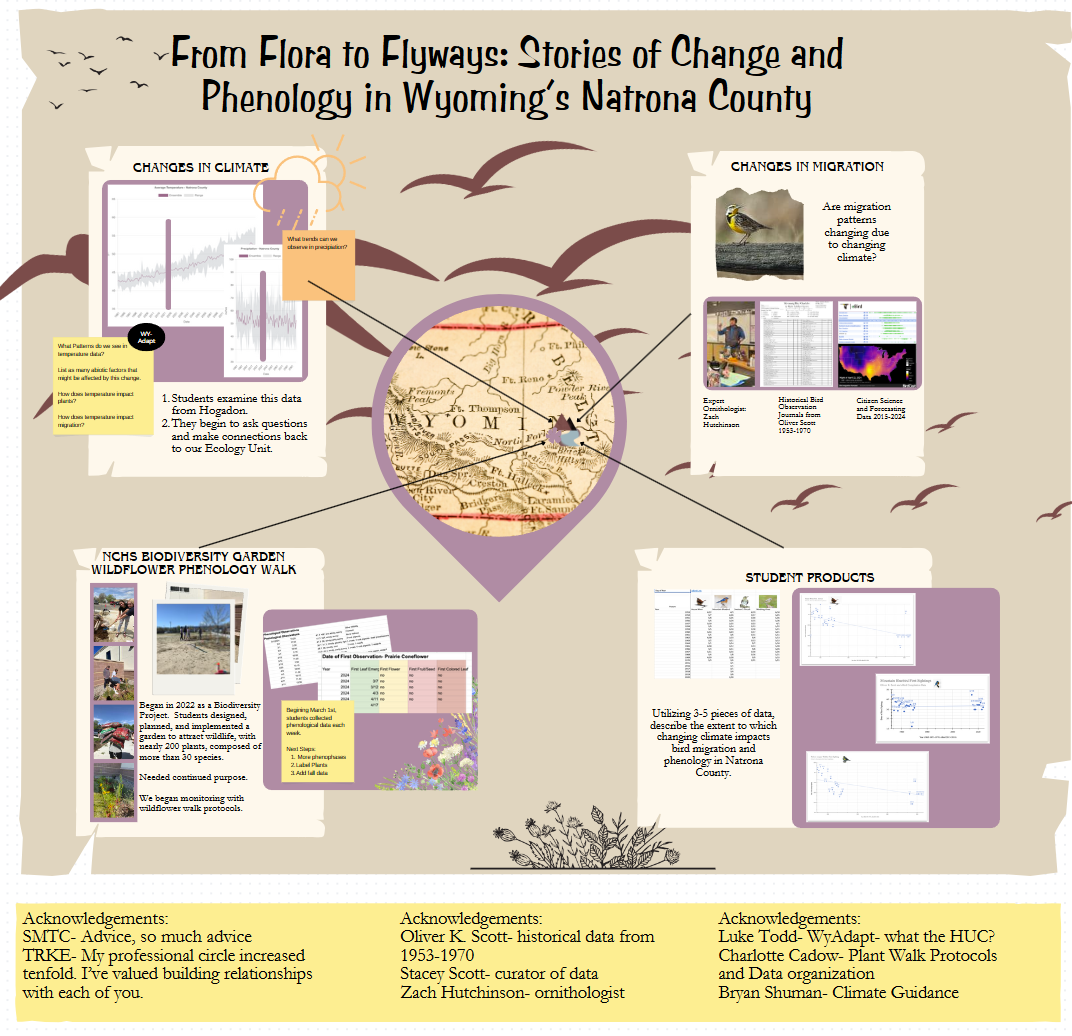
|
Exploring Changes in Flora and Fauna: A Phenological Study in Natrona County | InTheField DataVisualization CommunityEngagement AnalyzingAndInterpretingData | This project, showcased by Jenny Edwards, delves into the intricate shifts in phenology observed within Wyoming’s Natrona County. By examining historical data and current observations, the project provides a comprehensive view of how local ecosystems... |
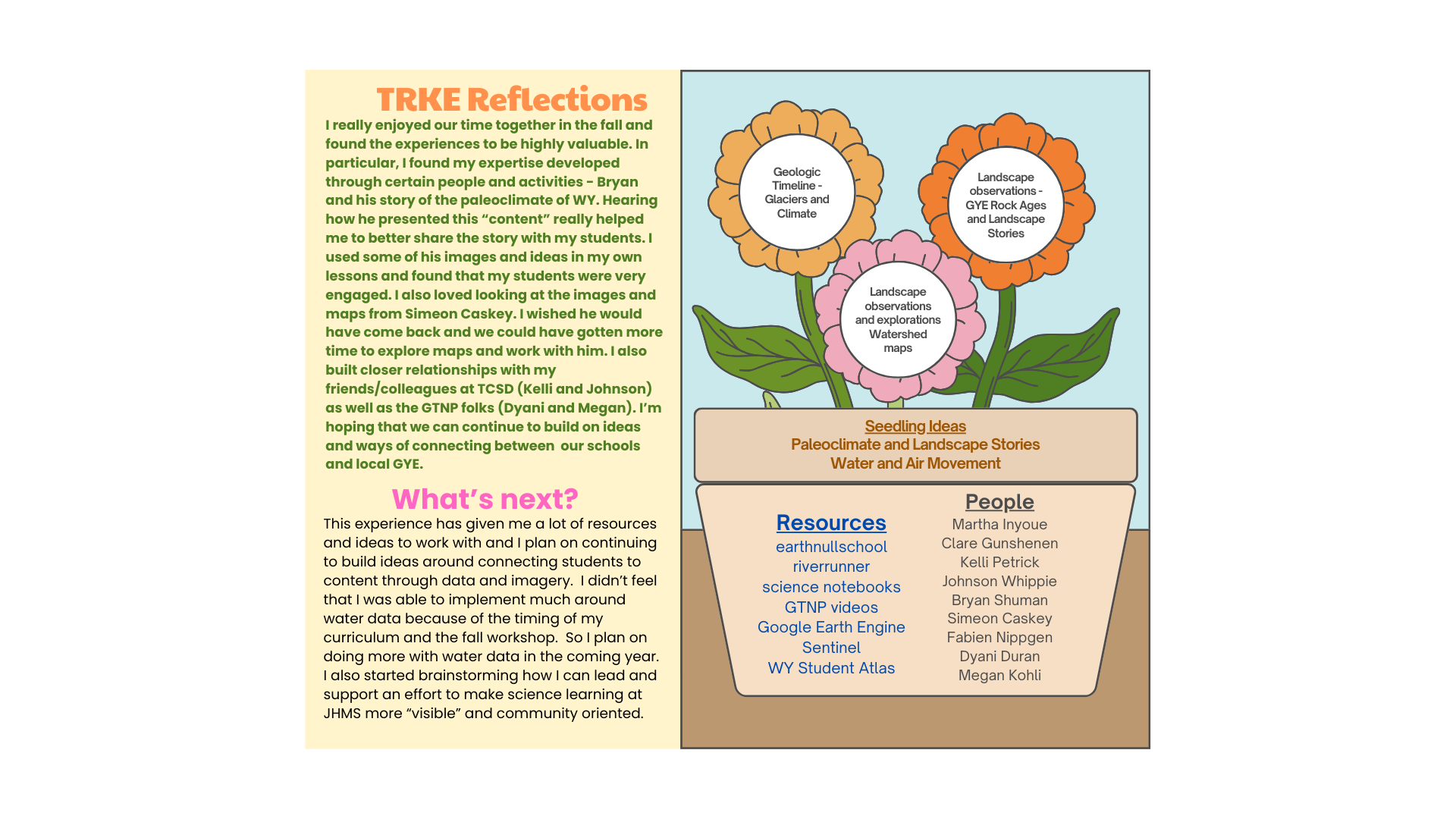
|
Integrating Real-World Science into Classrooms: Insights from Addie Deupree | DataVisualization InTheClassroom | In the fall, Addie Deupree participated in the TRKE program, engaging deeply with paleoclimate studies and educational practices. This experience enriched her teaching approach and significantly impacted her students’ understanding and interaction wi... |
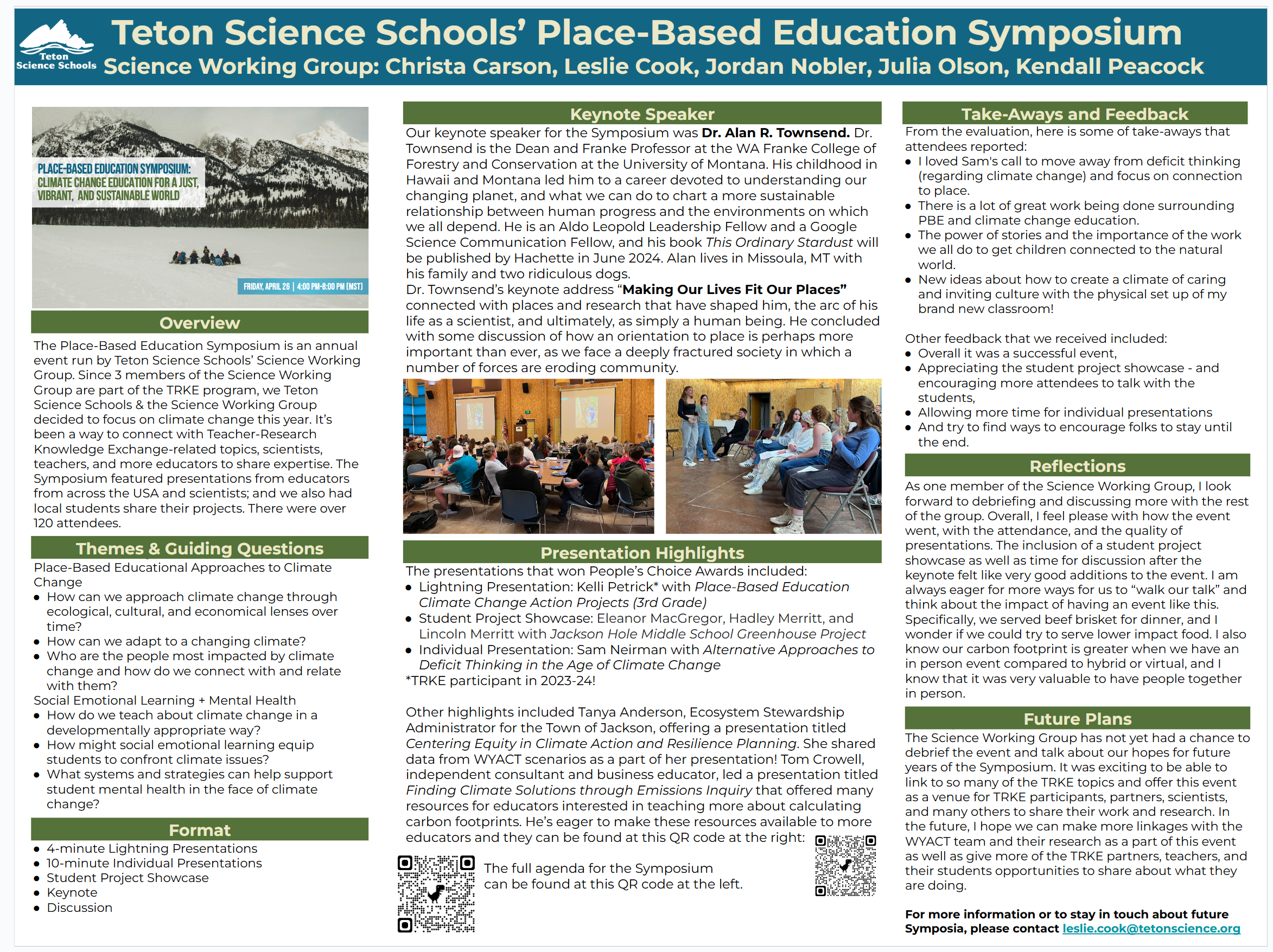
|
Highlights from the Teton Science Schools’ Place-Based Education Symposium | CommunityEngagement | The Place-Based Education Symposium, organized by Teton Science Schools’ Science Working Group, focused on climate change this year, integrating themes from the Teacher-Researcher Knowledge Exchange (TRKE). With over 120 attendees, the event featured... |
